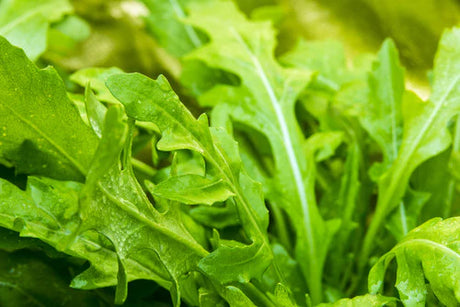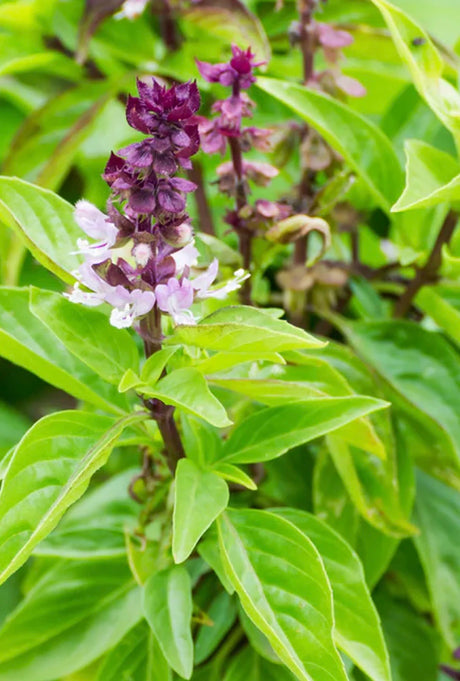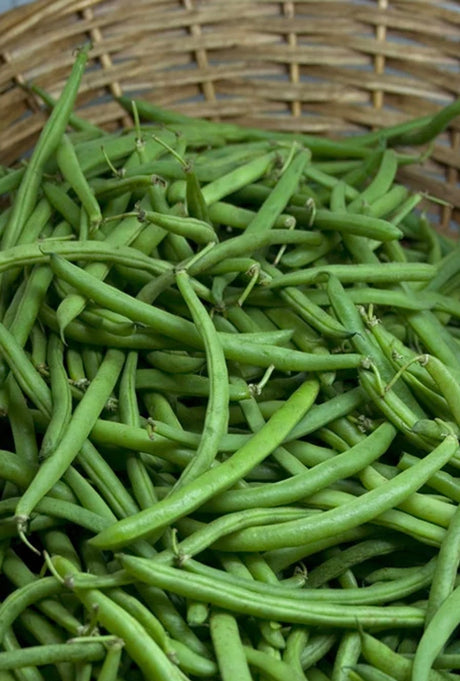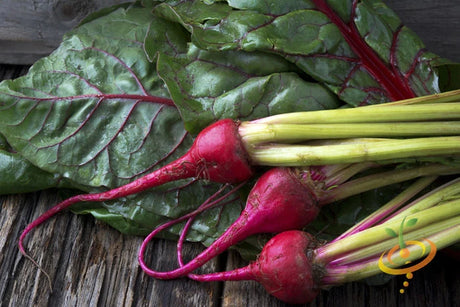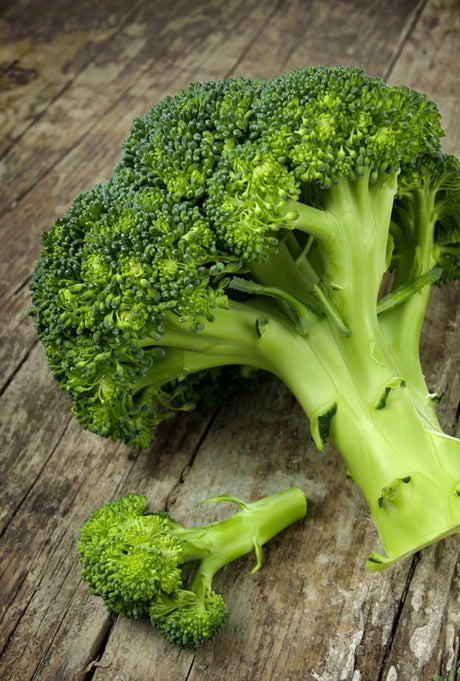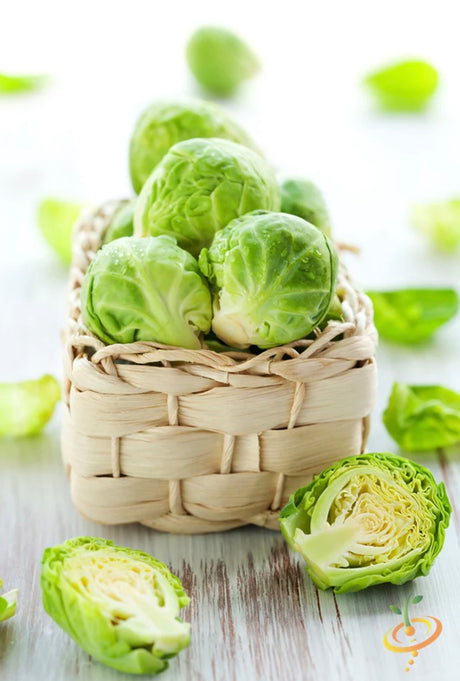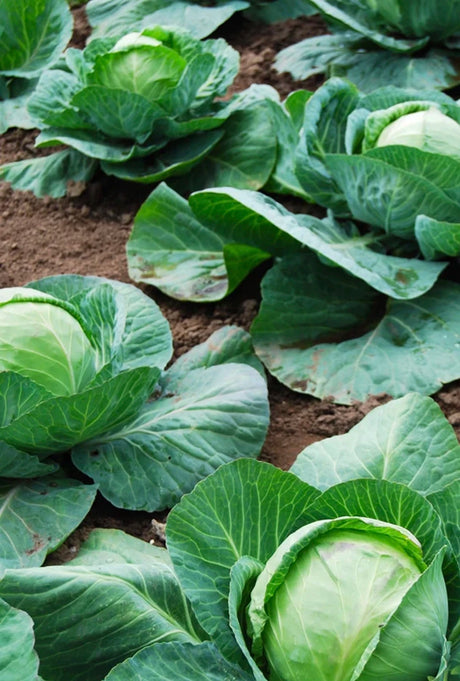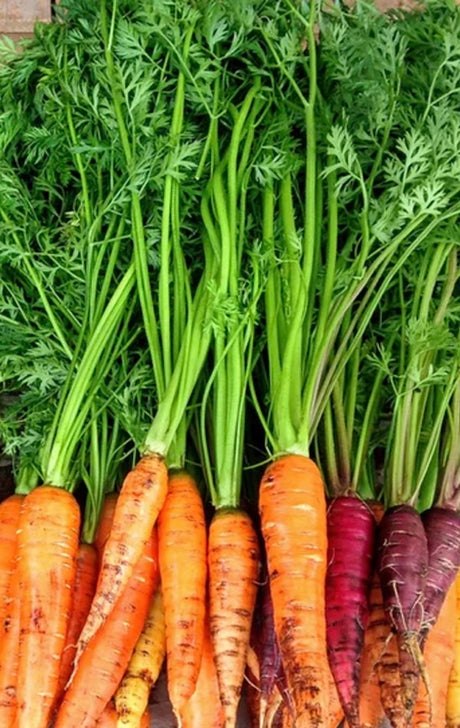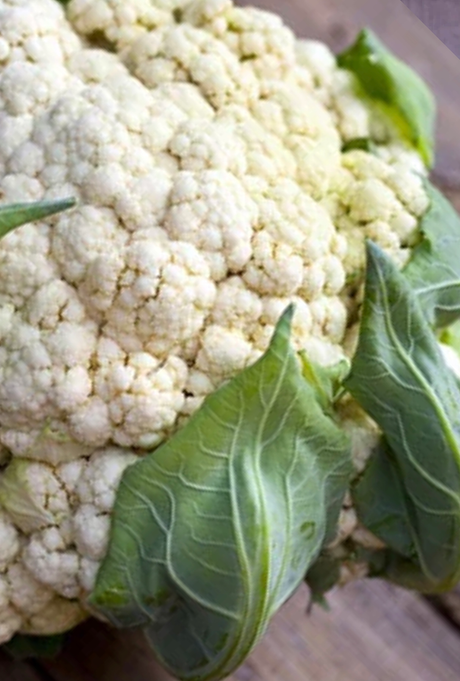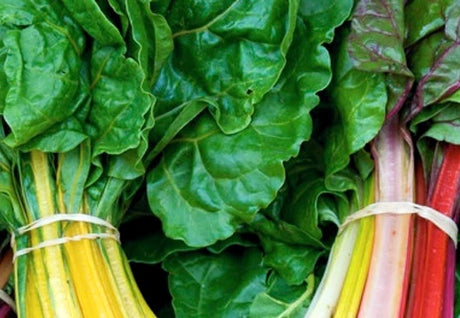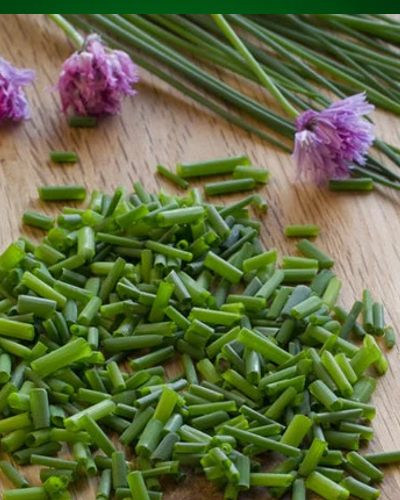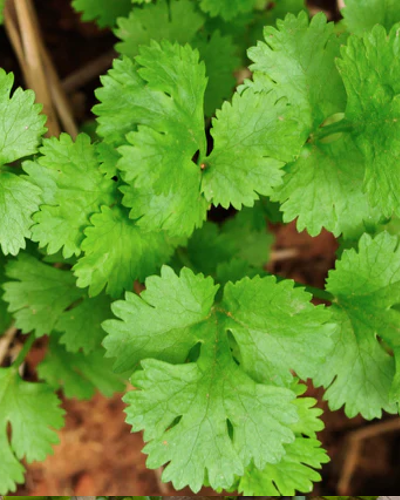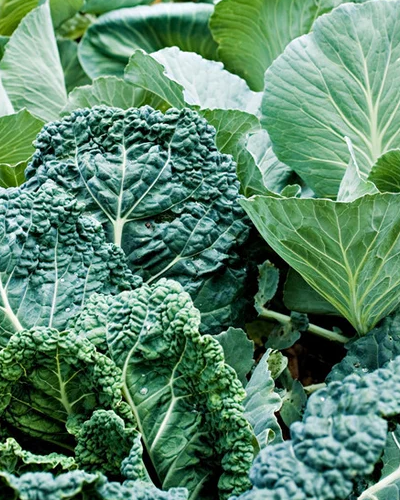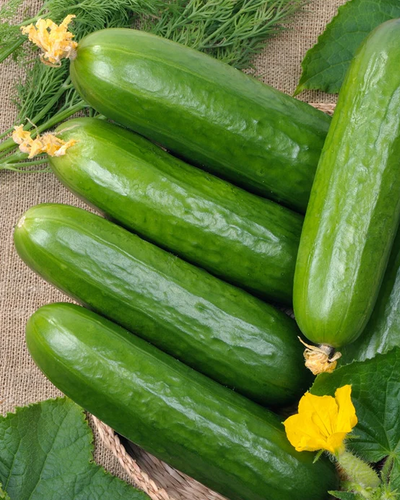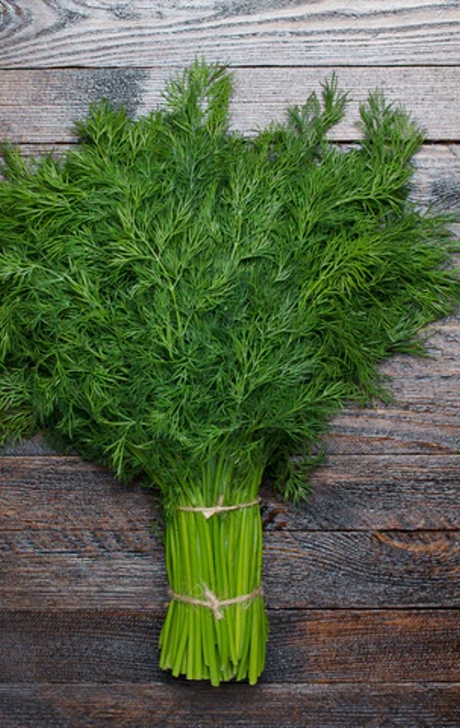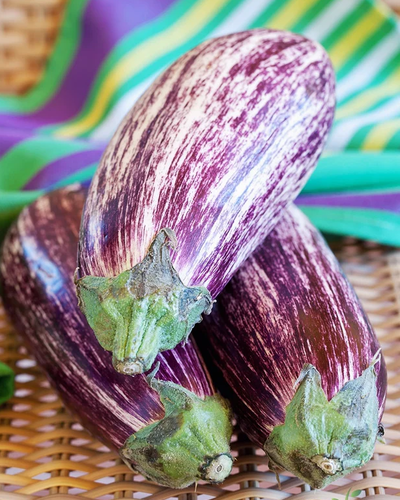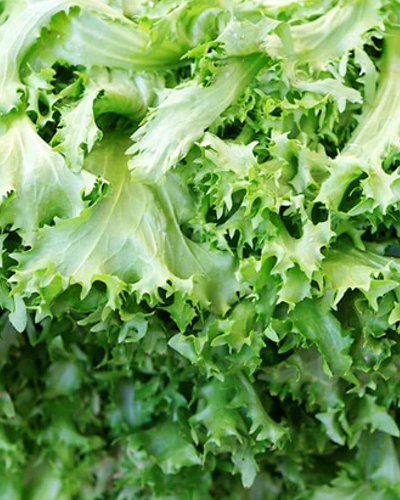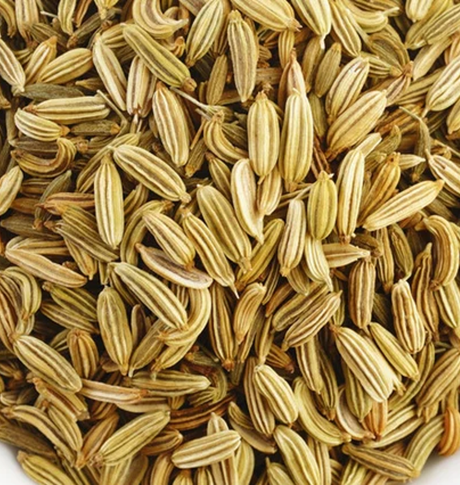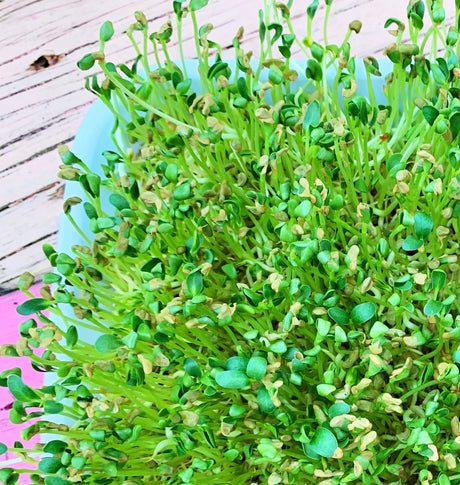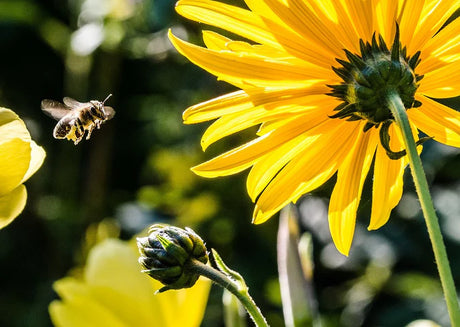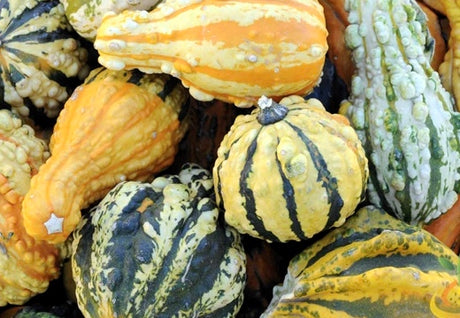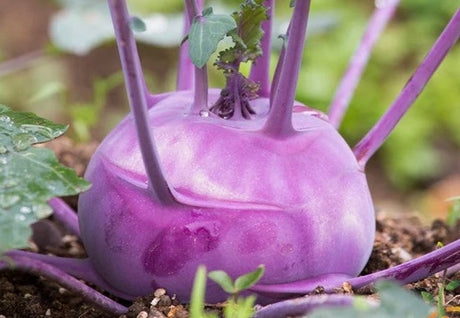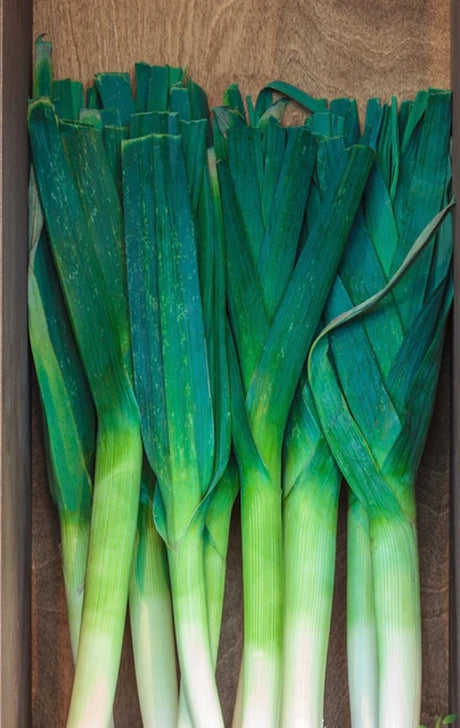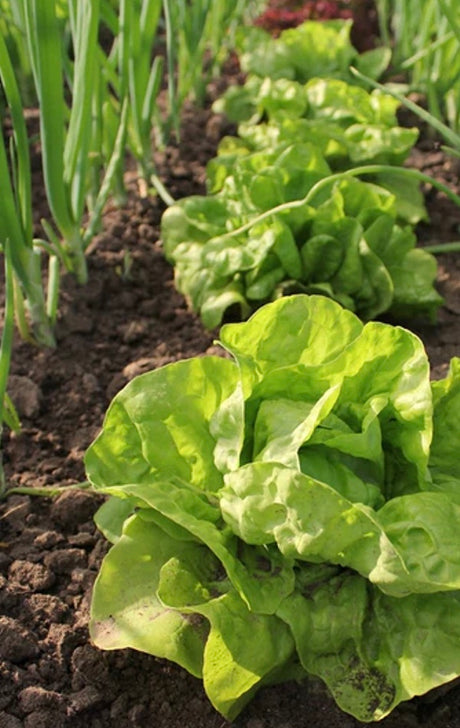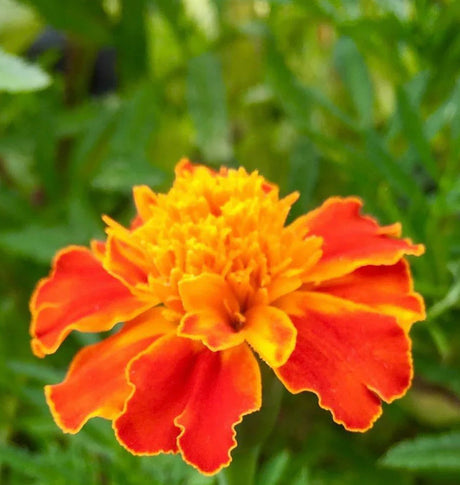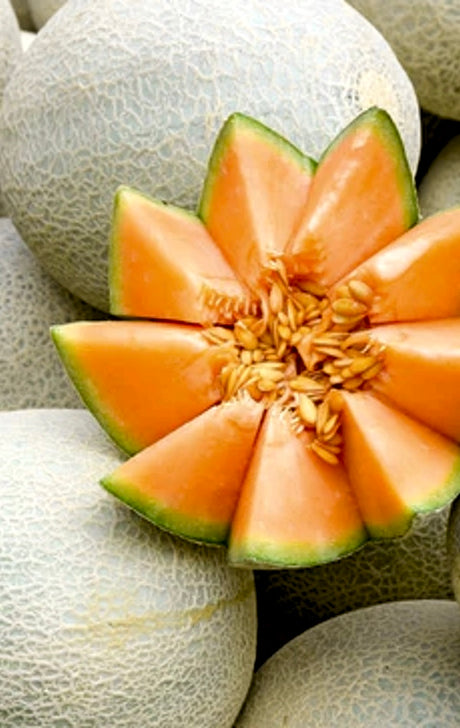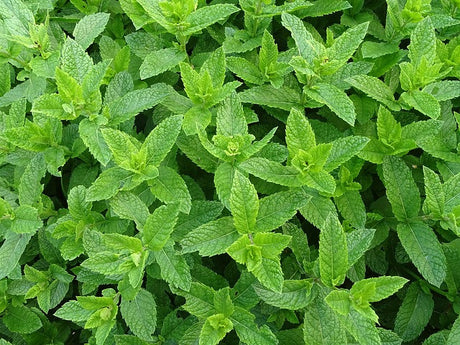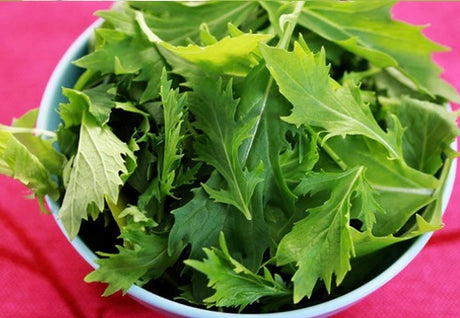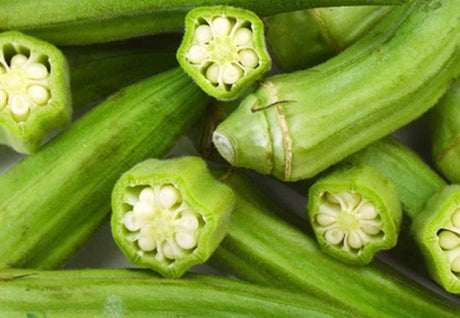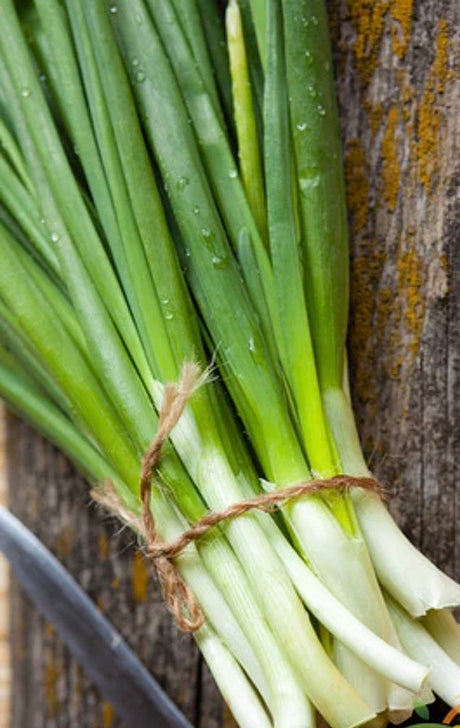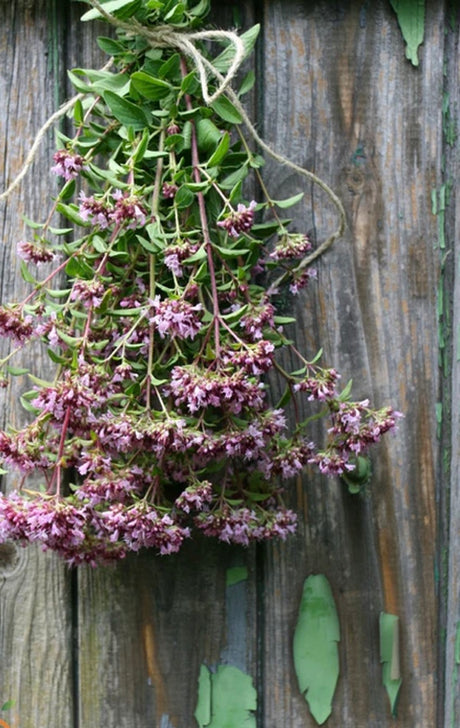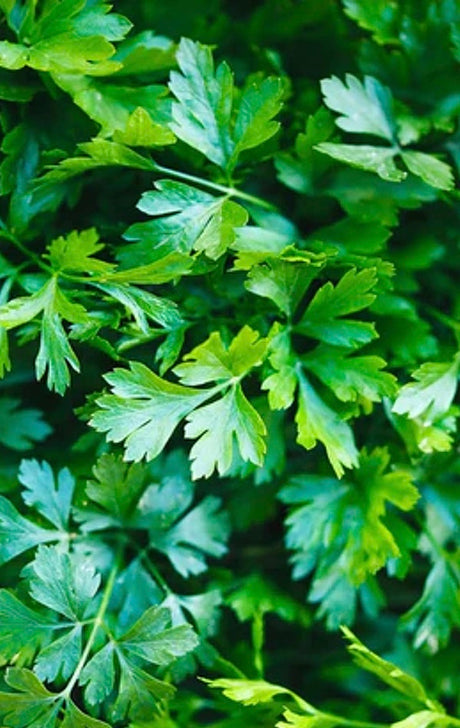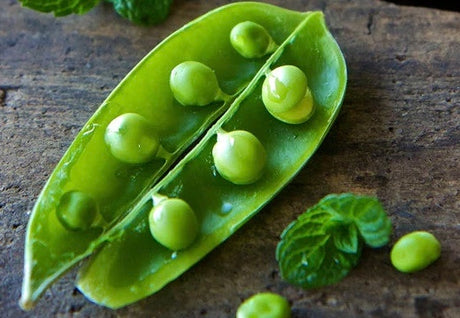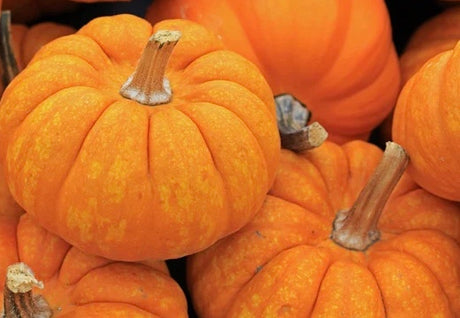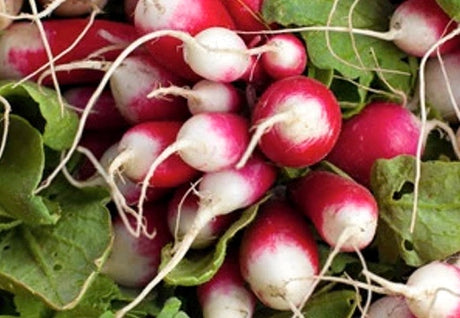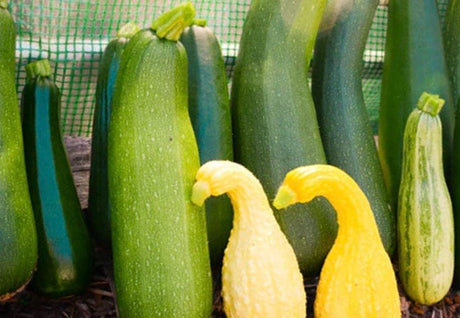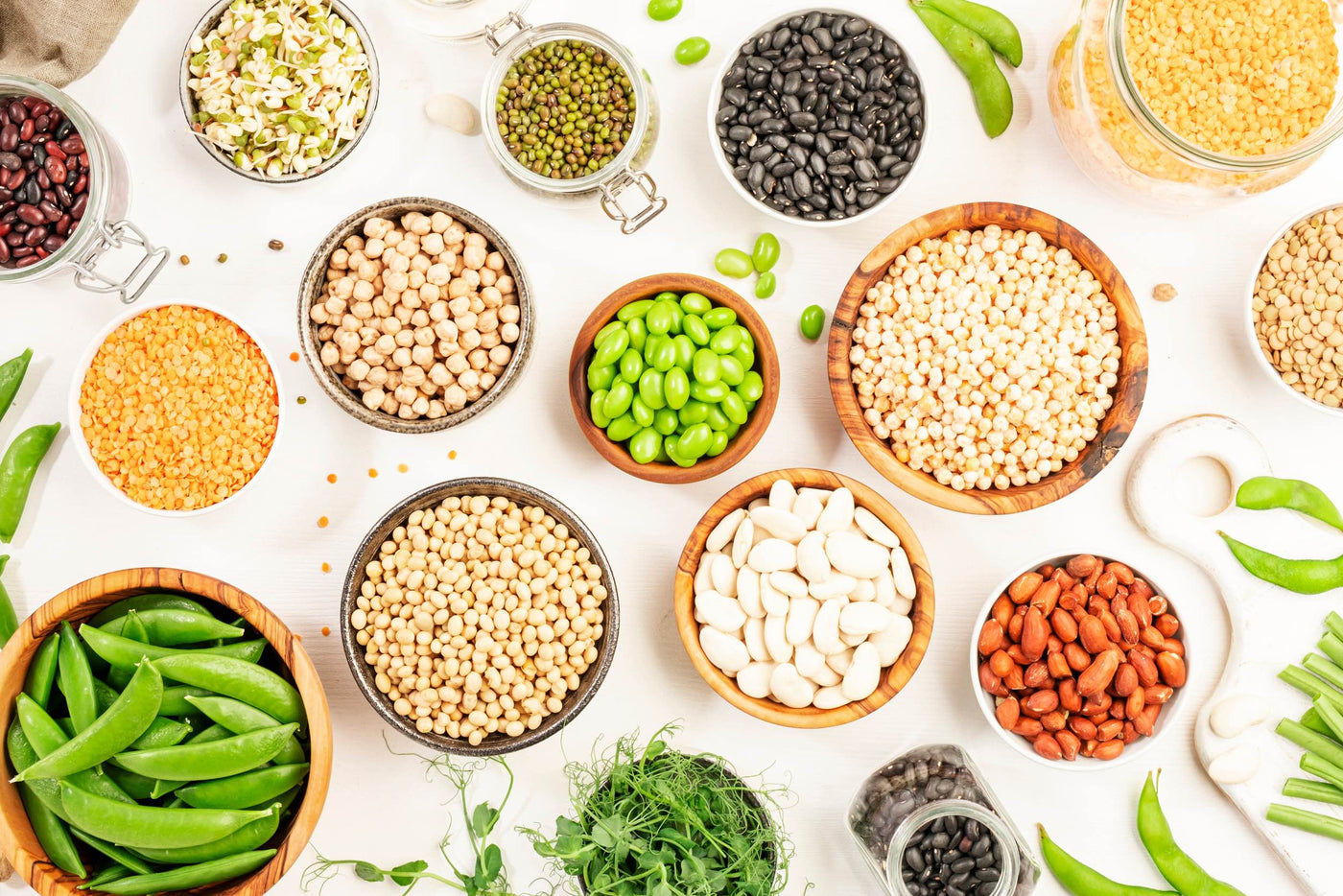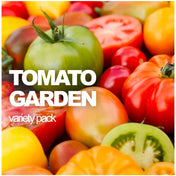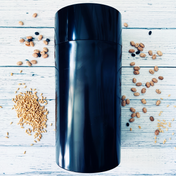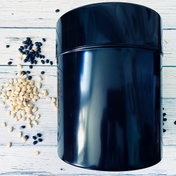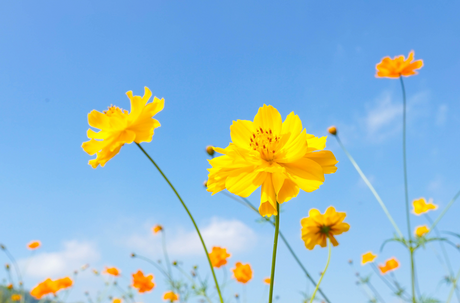*NEW!* SUPER HOT PEPPERS! 🌶️🔥🥵 Garden Variety Pack
$4999 USDUnit price /UnavailableDescription
This curated assortment brings together 15 of our most sought-after fiery varieties, perfect for heat enthusiasts and culinary adventurers. From Ghost Peppers and beyond, each variety delivers distinct flavor profiles alongside serious Scoville ratings. Ideal for gardeners seeking diversity without the guesswork, this pack ensures a season-long supply of premium hot peppers for fresh harvests, sauces, and culinary creations. Start your hottest garden yet.
What are Scoville heat units (SHU)? Scoville Heat Units measure the spiciness or pungency of peppers and spicy foods. The scale was developed in 1912 by pharmacist Wilbur Scoville, who created a standardized method to quantify capsaicin—the compound responsible for a pepper's heat. The Scoville scale ranges from 0 SHU (bell peppers) to 1 million SHU (Ghost Pepper). Each unit represents the amount of capsaicin present. A pepper rated at 50,000 SHU is fifty times hotter than one rated at 1,000 SHU.
Includes one (1) sampler pack of each the following: 
Scoville heat units (SHU): 800,000-1,000,000!!!! 🔥🔥🔥🔥🔥🔥
The Ghost Chili Pepper (Bhut Jolokia) may look like a little wrinkled whoopee cushion, but this pepper is no joke. One of the hottest peppers in the world. This 2"-3" conical fruit ripens from green to orange to red, with a sweet, fruity flavor that you’ll be able to taste for about 30-45 seconds until the heat creeps in and lights your mouth on fire. 🥵

Scoville heat units (SHU): 300,000-500,000 🔥🔥🔥🔥🔥
The Yellow Devil’s Tongue pepper plants produce legions of 2"-3" tapered fruits that wrinkle and ripen from light green to bright yellow to golden yellow, and have a sweet, citrusy flavor. If you’re tempted to set your own tongue ablaze and have idle hands, push up some daisies and plant this pepper. Makes a scorching hot sauce or wicked pickles.
Scoville heat units (SHU): 200,000-350,000 🔥🔥🔥🔥
An edible ornamental, the Pretty Purple Pepper loves an audience. Compact plants produce an ensemble of 1"-2" tapered fruits that lift their tips in a glorious chorus line of mini rockets, going through several costume changes in green, purple, yellow, orange, and red. The show goes on when you bite into one. With a searing purple heat in tune with the Habaneros and the Scotch Bonnets, you’ll be singing and dancing in your own Broadway musical.
Scoville heat units (SHU): 100,000-350,000 🔥🔥🔥
If you’ve ever wondered if the sun has a flavor, the Yellow Scotch Bonnet Pepper is your answer. This deeply lobed fruit that resembles the folds of a Scottish cap is sweet and fruity, and hot enough to break a wild horse. The generous plant produces 1"-2" fruits that ripen from green to yellow to yellower. This sunny little pepper is a key ingredient in Jamaican foods for unique flavor and scorching heat, and can easily ignite all of your recipes.
Scoville heat units (SHU): 100,000-350,000 🔥🔥🔥🔥
The Red Scotch Bonnet Pepper is so named because its defined lobes resemble a Scotsman’s tam o’ shanter hat. Also called the Caribbean Red Pepper, the stout little fruit is sweeter and fruitier than its cousin, the Habanero, and hot enough to make a bird fly north for the winter. The plant puts out loads of 1"-2" green waxy fruits with thin skin that ripen through yellow, orange, and red. Its extreme heat and unique flavor is traditionally used in Caribbean hot sauce and jerk seasoning, but will be just as tasty and burn just as hot in any of your recipes.

6. Tepin
Scoville heat units (SHU): 50,000-100,000 🔥🔥🔥🔥
The Tepin Pepper is a tiny treat with a lot of heat. Compact, vigorous plants produce lots of juicy, pea-sized fruits that are hot enough to make a cookie crumble. This is a perennial bush in warmer locations, so if it survives the winter, it will grow back bigger and more productive. Use it to heat up anything from honey to menudo to ice cream.
Scoville heat units (SHU): 400,00-600,000 🔥🔥🔥🔥
The Chocolate Habanero Pepper is a prolific plant that produces lots of 2" waxy nuggets that ripen from dark green to reddish brown. Twice as hot as other Habanero peppers, with a distinct flavor. First, a smoky earthiness drives up, then a fruity sweetness hops in the car, and soon you’re off at 600,000 SHUs, entering the on ramp to Ghost Pepper territory. Use it to spice up everything from margaritas to mango salsa to marinated brisket, and yes, even chocolate.

Scoville heat units (SHU): 400,00-600,000 🔥🔥🔥🔥
The sweet, citrusy flavor, tropical fragrance, and lush green foliage of the Red Caribbean Habanero will remind you of a beach vacation. And so will the searing heat! Produces loads of small 1"-2" wrinkled fruits that twinkle in colors ranging from key lime green to sunrise yellow to sunset orange to sunburn red. Use it to make some haba-haba salsa, broiled halibut with charred pepper cream sauce, or spicy pineapple ice cream.

Scoville heat units (SHU): 200,000-300,000 🔥🔥🔥🔥
Yellow like the sun and hot as blazes describes the Lemon Habanero Pepper. If that scares you, there’s a Yellow Banana Pepper and a cup of milk waiting for you in the nursery. Everyone else can pull up a chair to the big kids’ table. This prolific plant produces lots of 2" wrinkled, waxy fruits that ripen from bright green to bright yellow to smoky golden yellow. The fruity fragrance draws you in, the citrusy flavor sits you down, and then 200,000-300,000 Scoville heat units (SHUs) of pure heat blaze across your tongue. Where’d you say that milk is again?

10. Habanero, Orange
Scoville heat units (SHU): 200,000-300,000 🔥🔥🔥🔥
The Orange Habanero Pepper is the kind of pepper that makes you want to check your garden several times a day to see how orange it can get. Very. The kind of pepper that makes you wonder if you can add it to a dish with all orange ingredients like chorizo, carrots, and sweet potatoes. Yes. Or how about with apricots and cantaloupe?

11. Habanero, White
Scoville heat units (SHU): 100,000-300,000 🔥🔥🔥🔥
The White Habanero Pepper produces lots of small 1"-2" fruits, all of them infused with smoky, sweet flavor and a heat like white lightning. These little thunderbolts start out green and ripen to a glossy pearl. Use them to wake up a pot of white bean chicken chili or add a flash of fire to a jar of mayonnaise.

12. Tepin
Scoville heat units (SHU): 50,000-100,000 🔥🔥🔥
The Tepin Pepper is a tiny treat with a lot of heat. Compact, vigorous plants produce lots of juicy, pea-sized fruits that are hot enough to make a cookie crumble. This is a perennial bush in warmer locations, so if it survives the winter, it will grow back bigger and more productive. Use it to heat up anything from honey to menudo to ice cream.

13. Thai
Scoville heat units (SHU): 50,000-100,000 🔥🔥🔥
The Thai Hot Pepper hits every type of cuisine with a delightful bolt of lightning. This compact plant throws out lots of slender 1"-3" fruits that grow with their tapered tips up, maturing from popping green to crackling yellow to flashing orange to sizzling red. A type of Bird Pepper, the plant grows to only about 8" tall, so you can plant several close together for a striking ornamental border and more tasty peppers, or interplant throughout the garden.

14. Firecracker
Scoville heat units (SHU): 80,000-100,000 🔥🔥🔥
The edible ornamental Firecracker Pepper sends showy clusters of 1" tapered fruit up and out, like a Roman candle, producing bursts of white, green, lavender, yellow, orange, and red, as it moves into full ripeness. When you get past the sensation that you’ve just eaten a flare, you’ll taste some fruitiness. Adds a sparkle of color and spiciness to any dish or marinade.
15. NuMex, Twilight
Scoville heat units (SHU): 30,000-50,000 🔥🔥🔥
The NuMex Twilight Pepper may be slow to mature, but when it does, it’s full of surprises. Small 2" fruits start out purple rather than green, then ripen through yellow, orange, and red. The peppers point up toward the sky, like flowers, and all four colors adorn the compact 1'-2' plant at the same time, turning this edible ornamental into a living bouquet of salty, slightly bitter peppers so blistering hot, you’ll want to report them to the sheriff. Plant several close together as a border, or grow one in a special pot on the patio. Use as you would any other criminally hot pepper.
*Organic* Garlic Garden Variety Pack
From $999 USD$1794Unit price /UnavailableDescription
NEW! All-in-One Garlic Variety Pack includes an assortment of our 6 most popular garlic varieties.Soft-neck varieties typically have more cloves per bud than hard-neck varieties. They will not produce a hard flowering stalk, which makes it a great choice for braiding. The cloves are smaller than hard-neck varieties. These varieties can easily be stored for up to 9 months!
Elevate your garden with the Organic Garlic Garden Variety Pack, featuring 6 of our most popular soft-neck garlic varieties in one convenient collection. This carefully selected assortment offers rich flavors and reliable growth, making it perfect for gardeners seeking quality and variety. Plant this pack to grow your own fresh, organic garlic with ease and confidence.
ⓘ Did you know? Garlic can be planted in the spring as soon as the ground can be worked, but fall planting is recommended. Most people generally plant garlic somewhere between October - February.
Related links: Everything You Ever Wanted to Know About Growing Your Own Garlic ⟐ Garlic Grow Guide ⟐ How to Roast Garlic in the Oven ⟐ Growing Garlic, in the Spring ⟐ Growing Garlic, in the Fall ⟐ Learn How To Re-Plant Corms that Come From Your Elephant Garlic
Includes all of the following varieties:
1. Garlic - Early Purple Italian (Organic)
- The bulb is large and white-skinned with purple stripes and numerous small cloves. Widely grown around Gilroy, California, the "garlic capital" of the world. • An excellent variety for hot climates. Mild Flavor. Purple stripes.

2. Garlic - California Early (Organic)
-
California Early is very adaptable to any climate, and easy to grow. This variety has one of the longest storage life. Flavor is very mild.

3. Garlic - Silver Rose (Organic)
-
This heirloom garlic has medium to large bulb. Rose-colored cloves in very smooth bright-white bulbs. Mild flavor.
Beautiful garlic to braid!
The longest-storing garlic we sell.
Fast-growing garlic.
Very popular in western and southern US and in France and Italy.

4. Garlic - Nootka (Organic)
-
This heirloom garlic has medium to large bulb. Beautifully bright white skin with light rose-colored streaked cloves Very attractive for braiding. Excellent flavor. Strong flavor. In rich soil, cloves can lose their rosy hue. This variety of garlic has long shelf-life and will store well into next spring or even summer.

5. Garlic - Italian Late (Organic)
- Light colored wrappers covering cloves which are generally fat and round. The extra-tight skin makes it a better keeper. This variety matures later than Early Italian Purple and tends to be somewhat smaller then Early Italian Purple as well. Good braiding type.
- The bulb is large and white-skinned with purple stripes and numerous small cloves. Widely grown around Gilroy, California, the "garlic capital" of the world. • An excellent variety for hot climates. Mild Flavor. Purple stripes.
All-in-One Annual Flower Garden Variety Pack
$3999 USDUnit price /UnavailableDescription
NEW! Annual Flowers Variety Pack includes an assortment of our 15 most popular annual flower seed varieties!The Annual Flowers Variety Pack is a meticulously curated selection designed for both novice and experienced gardeners. This pack includes an assortment of 15 of the most popular annual flower seed varieties, each chosen for their vibrant colors, ease of growth, and ability to thrive in diverse environments.
Annual flowers are characterized by their life cycle, completing their growth from seed to flower within a single growing season. This rapid growth allows gardeners to enjoy a quick burst of color in their gardens, making them an ideal choice for seasonal planting. According to horticultural studies, annual flowers can enhance garden aesthetics and contribute to biodiversity by attracting pollinators such as bees and butterflies.
The 15 varieties included in the Annual Flowers Variety Pack have been selected based on their popularity and performance. These varieties typically exhibit a range of growth habits, from compact to sprawling, and can be utilized in various garden settings, including borders, containers, and mixed beds. Research indicates that incorporating a diverse array of plants can lead to healthier ecosystems, as different species can support one another through complementary growth patterns.
Includes: 
The Crego Mix Aster (Callistephus chinensis) is a showy collection of full 4" flower heads with delicate curled petals in multiple pastel hues of red, white, pink, and purple. Also called China Aster, it resembles the Chrysanthemum and grows 2'-3' tall. A soft accent in the garden or as a cut flower. Appx. 100 seeds

2. Candytuft, Fairy Dwarf Mix Flowers
The Fairy Dwarf Candytuft Mix (Iberis umbellata) is a drought-tolerant, low-lying annual with sweet, delicate flowers in an array of white, rose, lavender, and red. Loves full sun, but will tolerate partial shade. Good for ground cover, cottage gardens, or containers. Appx. 100 seeds

3. Cosmos, Orange Sulphur Flowers
Orange sulphur cosmos, also known as Cosmos sulphureus, are vibrant and easy-to-grow annual flower that can add a pop of color to any garden. If you're looking to brighten up your outdoor space with these stunning blooms, here's everything you need to know about growing orange sulphur cosmos in your garden. Appx. 100 seeds

4. Daisy, African Flake (Cape Marigold) Flowers
The African Flake Daisy (Dimorphotheca sinuata), also called Cape Marigold, puts out 2"-3" daisy-like flowers in bright, happy colors of orange, white, and yellow around brown-rimmed centers on 8"-16" stems. Whether in the garden or a vase, this day flower closes up its petals at night, reopening the next day. Drought tolerant and blooms early. Appx. 100 seeds

The Chinese Forget-Me-Not (Cynoglossum amabile) is a highly productive easy-care annual. Produces adorable, delicate sprays of blue blossoms with scalloped petals around a blue center. Grows 1'-2' tall on thin, hairy stems with lance-shaped foliage. Stunning in the garden or as a cut flower. Appx. 100 seeds

6. Globe Gilia (Queen Anne’s Thimble) Flowers
The Globe Gilia (Gilia capitata) is an easy-care drought-tolerant annual. Produces globe-shaped 1"-2" blue-hued flowers on thin stems with lacy foliage that grow 2' to 3' tall. Also called Queen Anne’s Thimble for its resemblance to a pincushion. Appx. 100 seeds

The Love-in-a-Mist flower (Nigella damascena) is a striking annual in the buttercup family. Produces 1"-2" blossoms in shades of blue, pink, purple, and white. Fluffy petals surround a horned center seed pod, and the entire flower is surrounded by a “mist” of fern-like foliage that continues along the thin stem that grows 1'-2' tall. An old-fashioned flower with modern appeal. Appx. 100 seeds

The Arroyo Lupine (Lupinus succulentus) is a fast growing annual. It’s in the legume family, so it fixes nitrogen in the soil and is a great companion plant or cover crop for the vegetable garden. Produces dense spires of bright blue pea-sized blossoms with pink or white tips. Grows 2'-4' tall on sturdy stems with daisy-like palmate foliage. Put a few in a pot or plant in wide bands for a striking effect. Appx. 40 seeds

9. Nasturtium - Dwarf Jewel Mix Flowers
Fragrant, colorful mix of dwarf flowers in a compact plant usually getting no taller than 12 inches. Nasturtium flowers are one of the most popular edible flowers grown in home gardens. The petals have a slight peppery taste, and the seeds and leaves are also edible! You can even use the seeds as an alternative to capers! Appx. 15 seeds

10. Nasturtium - Empress of India Flowers
Large scarlet blooms will grow on this attractive 1 foot tall, compact plant. Not only are the flowers pretty, Nasturtiums are great companion plants! They are also known to deter aphids, whiteflies, cucumber beetles & more. Appx. 15 seeds

The Nodding Catchfly (Silene pendula) is a bushy, vigorous, low-growing annual. So named because small flies and gnats get stuck in the sticky seed pod. Produces clusters of charming pink blossoms with notched petals around a light pink center. Grows 6"-10" tall on a nodding stem with hairy, oval foliage. Beautiful cascading over a hanging basket or stone wall. Appx. 50 seeds

The Lacy Phacelia (Phacelia tanacetifolia), also known as Scorpionweed and Purple Tansy, is a fast-growing, drought-tolerant, cold-hardy annual in the borage family. Produces coiled, whiskered lavender-colored blossoms that look similar to a scorpion tail, fiddlehead, or thistle. Grows 2'-3' tall on thin, hairy stems with lacy foliage. Plant a few or a field, or add a bit of wildness to a cut arrangement. An especially great companion plant in the vegetable garden as it’s quick to bloom, attracts bees and hoverflies, and stores nitrogen which also makes it a good cover crop. Appx. 100 seeds

13. Wildflowers - Annual Cut Flower Scatter Garden Seed Mix
Includes a mix of 25 popular annual flower varieties that will produce a beautiful assortment of flowers suitable for cutting. The mix includes many of the flowers found in floral stores. This annual flower mix will blossom all-year-long creating a bountiful source of flowers.

14. Zinnia, Orange King Flowers
The Orange King Zinnia (Zinnia elegans) is a tender annual with a long 3-month blooming period. Produces huge 4"-5" double blossoms with small, oval mandarin-orange petals around a dark center. Grows 2'-3' tall on sturdy stems with lance-shaped foliage. Zingy as a long-lasting cut flower in a bouquet or vase. Appx. 20 seeds

15. Zinnia, Polar Bear Flowers
The Polar Bear Zinnia (Zinnia elegans) is a tender annual with a long 3-month blooming period. Produces huge 4"-5" double blossoms with long, oval crisp white petals around a golden center. Grows 2'-3' tall on sturdy stems with lance-shaped foliage.Stunning as a long-lasting cut flower in a bouquet or vase. Appx. 20 seeds
All-in-One Bunny Garden Variety Pack
$3999 USDUnit price /UnavailableDescription
100% Non-GMO, Pure Heirloom, Soy and Corn FREE Treats For Your Bunny That You Can Grow At Home
••●•• Feed and Heal your Bunny Naturally ••●••

All-in-One Bunny Garden Variety Seed Pack includes an assortment of the 15 most popular varieties that rabbits absolutely love to eat. These are the best healthy treats you can grow in your garden to feed your bunny.
Includes all of the following crop varieties:

1. Alfalfa Sprouts (appx. 4,000 seeds)
- These alfalfa greens are very good for younger rabbits and those that are underweight. We have included alfalfa sprouts in this variety pack because they are one of the easiest varieties you can grow. They are full of protein and calcium. A great addition to your baby bunnies diet.

2. Borage (appx. 65 seeds)
- Borage is another great plant to feed your bunny. Very high in calcium, borage is like a powerhouse for supporting their cardiovascular system. The leaves may be harvested at anytime and can be used dried or fresh. The plant is best consumed fresh, right after harvest if you're looking for it's characteristic flavor, similar to that of a cucumber.

3. Basil Herb Mix (appx. 120 seeds)
-
Rabbits actually love basil! Mix some in with the rest of their feed and they will love you! When growing basil, as soon as you see flowers start to appear, make sure you pinch or snip them off. This will help the plant stay focused on producing leaves and will encourage the plant to "branch out" as well. Once your basil plant is about 6 inches tall, start pinching off the tops to encourage branching.

4. Little Finger Carrots (appx. 200 seeds)
-
Bunnies absolutely love these carrots! These Little Finger carrots are one of the quickest to grow. They produce 4" cylindrical roots. Tender and sweet variety . Can be grown in a small space quite easily. Carrots are a sun-loving plants that also like the cold. Just keep them consistently watered and they'll be happy.


5. Cilantro (aka coriander) (appx. 80 seeds)
-
Cilantro is high in vitamin K and A. A great addition to any bunnies diet. Just make sure the plant is fairly established before you start harvesting so it will be able to handle the stress and recover as it continues to grow. Once the flowers have gone to seed, start to re-sow more seeds. That way you won't run out and have a continual harvest of fresh cilantro on your hands. You can harvest the leaves or the entire plant at once.

6. Dill (appx. 100 seeds)
-
Very beneficial to your bunnies health. Fresh dill can be fed to your bunnies. When you're ready to harvest, look for the dark green leaves, otherwise known as "dill weed". You can harvest the leaves at any time. The young leaves tend to have better flavor.

7. Golden Celery (appx. 130 seeds)
-
Many people have reported that rabbits absolutely love to eat celery greens. Mix this into your rabbits diet and they will be sure to love it. Start off with small amounts to get them used to it and increase gradually over a couple days. Celery is very easy to grow!

8. Space Master Cucumber (appx. 10 seeds)
-
Cucumbers are another great treat to feed your rabbits. While cucumbers may not be as nutrient dense as others they sure do make a great treat.The Spacemaster cucumber gets its name for that very reason ... It's the perfect cucumber variety for gardeners that want to grow cucumbers in limited space. The plant has short vines. Extremely compact cucumber plant and produces excellent yields of delicious green cucumbers for your rabbit.

9. Premier Kale (appx. 60 seeds)
-
It's no secret that rabbits love leafy greens. They are high in Vitamin A. Mix some Kale into their diet and they'll be happy. The Premier Kale variety is a very flavorful Kale variety. This variety will stay in the ground 3-4 weeks longer than other Kale varieties. Also an excellent variety for a Fall and Winter harvest!

10. Dark Green Romaine Lettuce (appx. 135 seeds)
-
An essential ingredient to any rabbits diet is leafy greens! Rabbits also love romaine lettuce. Add this to their diet and they will be very happy!Large, upright, full-bodied heads with dark-green, slightly savoyed leaves that are mild and sweet. Plant reaches about 10 inches tall. Midribs are crunchy and juicy. Because of their higher chlorophyll content, romaine lettuces are among the most nutritious of all lettuces. Excellent performer in the inter-mountain region. Mosaic tolerant.

11. Red Salad Bowl Lettuce (appx. 150 seeds)
-
The Red Salad Bowl Mix is a really easy-to-grow lettuce variety. Extremely flavorful red leafs. Continues to grow as picked. As outer leaves are picked, inner leaves keep growing. Excellent addition for salads and garnishes.

12. Little Marvel Peas (appx. 15 seeds)
-
Rabbits love peas and pea shoots. They can be quite high in sugar so feed them to your rabbits in moderation. Rest assured they will absolutely love eating them!

13. Red Clover Sprouts
-
Rabbits also love clover sprouts. They are very easy to grow and typically only take less than a week until they are ready for your rabbits to enjoy. These sprouts are actually larger and more flavorful than alfalfa sprouts and make a great addition to what you feed your rabbits. They will be so happy eating clover sprouts.

14. Cucumber - Muncher (appx. 10 seeds)
- Bunnies love cucumbers! The Muncher cucumber is a delicious variety perfect for munching right out of the garden! Excellent flavor and taste - Medium sized fruits. Easy to grow. Learn more

15. Carrot - Kuroda, 8" Long (appx. 130 seeds)
-
Plant produces high yields of flavorful 8" long orangish red carrots. Grows well in raised beds and compact spaces
All-in-One Chicken Garden Variety Pack
$3999 USDUnit price /UnavailableDescription
100% Non-GMO, Pure Heirloom, Soy and Corn FREE Treats For Your Backyard Chickens That You Can Grow At Home
••●•• Heal your Chickens, Naturally ••●••
 Sariann I. wrote us and said:
Sariann I. wrote us and said:
"I've been growing & feeding fresh herbs/sprouts with seeds we've purchased from your company to our backyard chickens. They've never been so happy or healthy! All of our hens love receiving these fresh treats that we are able to grow in our vegetable garden and then share with them to enhance their health, deter pests, increase laying production & "spruce up" their coop and nesting boxes with an aromatic herb or two. Feeding our chickens these herbs has cut our feed costs by up to half! We never felt right about feeding our chickens soy or GMO corn feed. We love being able to provide our chickens with healthy & organic herbs that we've grown especially for them!"
Includes all of the following 15 varieties:

1. Alfalfa Sprouts (appx. 4,000 seeds)
- These greens are very good for your chickens can be part of a healthy diet. Don't forget that feeding your chickens will up their protein intake! Also, feeding them alfalfa is linked to increased pigmentation, which means layers will produce eggs with more deep orangey yolks.

2. Borage (appx. 65 seeds)
- The leaves may be harvested at anytime and can be used dried or fresh. The plant is best consumed fresh, right after harvest if you're looking for it's characteristic flavor, similar to that of a cucumber. Placing borage around your coop or hen house will deter pests. Very high in calcium, borage is like a powerhouse for supporting their cardiovascular system.
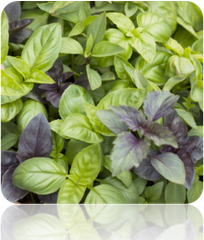
3. Basil Mix (appx. 120 seeds)
-
Antibacterial, mucus membrane health. Can be used to brew an "herbal tea" for new chicks for a healthy start. Is wonderful when dried and added to nesting boxes. When growing basil, as soon as you see flowers start to appear, make sure you pinch or snip them off. This will help the plant stay focused on producing leaves and will encourage the plant to "branch out" as well. Once your basil plant is about 6 inches tall, start pinching off the tops to encourage branching.

4. Cilantro (appx. 80 seeds)
-
If you want to support your chickens bones, feeding them cilantro is a wonderful and natural way to do that. High in vitamin K and A. Acts as a fungicide and contains many beneficial antioxidants. Harvest the cilantro leaves around the base of the plant. Just make sure the plant is fairly established before you start harvesting so it will be able to handle the stress and recover as it continues to grow. Once the flowers have gone to seed, start to re-sow more seeds. That way you won't run out and have a continual harvest of fresh cilantro on your hands. You can harvest the leaves or the entire plant at once.

5. Dill (appx. 100 seeds)
-
Very beneficial to your chickens respiratory health, fresh dill can be fed to your chickens. Try drying and then hanging it near or inside of the nest boxes. It aids in the laying process because it is a natural sedative. When you're ready to harvest, look for the dark green leaves, otherwise known as "dill weed". You can harvest the leaves at any time. The young leaves tend to have better flavor.

6. Fennel (appx. 100 seeds)
-
Recognized as a laying stimulant. Add some freshly cut fennel foliage to your nesting boxes or shaved Fennel bulb to your chickens feed to ensure fresh eggs, year round. Harvest the bulbs when they are approximately the same size as a tennis ball. Once the plant bolts, the flavor will be ruined so try to harvest it before them. Cut the bulb and stalks off right at the soil line.

7. Lemon Balm (appx. 80 seeds)
-
Ward off stress with this this antibacterial and aromatic herb. It makes for a wonderful rodent repellent. It calms their nerves, and smells wonderful in the coop. Hang this fresh herb to dry and then add to nesting boxes to sooth and relax your chickens. Harvest leaves from your lemon balm plant at any time. Dry indoors upside down, chop and store for later use.

8. Lemon Grass
-
Fly repellent. Similar to "citronella" in scent. The long, grassy leaves should be collected by snipping them off with scissors anywhere from mid summer on.
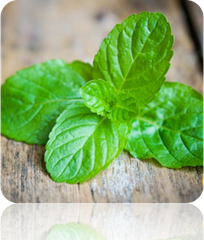
9. Mint, Spearmint (appx. 280 seeds)
-
Repel insects and rodents with this powerful, aromatic herb. It has been known to aid in regulating body temp., produce stronger egg shells, and helps with the chickens digestive system. Pick the leaves as you need them or harvest a large amount from each mint plant up to three times in one growing season. Cut the stems 1-2 inches from the ground. You can take cuttings from the plants you already have and root them in a little bit of water and then plant them indoors for fresh leaves throughout the winter. If you want to dry the leaves, it's best to harvest them before the plant goes to seed.
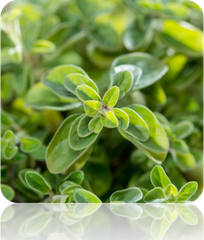
10. Oregano, Greek (appx. 200 seeds)
-
Combats many diseases like coccidia, salmonella, and e-coli. It can ward off the dreaded avian flue. Oregano naturally strengthens the immune system. Harvest oregano anytime after they have reached 4-6 inches tall. Harvest oregano leaves in the morning hours as soon as the dew has dried for best flavor. Once harvested, use fresh or store leaves whole, placed in freezer bags and frozen. They can also be dried in a dark, well-ventilated area and stored in airtight containers until ready to use.

11. Parsley, Dark Green Italian (appx. 60 seeds)
-
High in many necessary vitamins and minerals that are required for optimal chicken health. Helps blood vessel development and has been known to be a great stimulant for laying. Harvest your parsley once the leaves begin to curl. Pick the leaves earlier in the day when the oils are the strongest. You can store the sprigs of parsley in a jar with a little bit of water in the bottom, inside the refrigerator for later use.
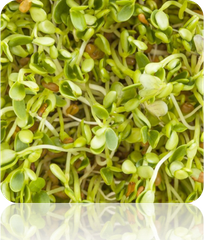
12. Broccoli Sprouts
-
These sprouts are actually larger and more flavorful than alfalfa sprouts and make a great addition to what you feed your chickens. Your chickens be so happy eating broccoli sprouts.
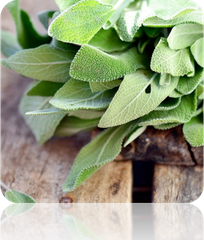
13. Sage (appx. 25 seeds)
-
Feed your chickens sage to increase overall health. This herb can also combat disease and is an anti-parasitic. Smells wonderful in the coop. Store in an airtight container, in a cool and dry place.

14. Lettuce - All Year (appx. 200 seeds)
-
As its name suggests, this is a lettuce that can be gown throughout the year, though it will require protection with a cloche or cold frame in the cooler months. The 'All Year Round' lettuce is a classic Butterhead lettuce, with medium sized loosely formed heads and soft, buttery-textured green leaves.

15. Lettuce - Romaine, Classic "Paris Island Cos"
-
Large, upright, full-bodied heads with dark-green, slightly savoyed leaves that are mild and sweet. Because of their higher chlorophyll content, romaine lettuces are among the most nutritious of all lettuces. Excellent performer in the inter-mountain region. Mosaic tolerant.
All-in-One Culinary Herb Garden Variety Pack
$3999 USDUnit price /UnavailableDescription
Grow an indoor or outdoor culinary herb garden with your favorite herbs. Herbs will do well in a variety of locations, especially in containers. This variety pack is perfect for those who want to grow fresh herbs throughout the cooler months on their covered decks, patios and even indoor windowsills. This All-in-One Herb Variety Pack includes an assortment of our 15 most popular varieties. Seeds are all individually packaged.
Includes all of the following seed varieties:
1. Basil - HERB MIX (appx. 120 seeds)
Enjoy some of our most popular varieties of Basil Herbs. This is a special blend of basil varieties we carry, sure to be a show stopper! You'll enjoy a wide variety of Basil plants with great flavors! Very easy to grow and extremely popular for those that can't decide on which variety to try in their own garden! Learn more
2. Basil - Leaf Lettuce (appx. 120 seeds)
Annual plant. Produces very flavorful and tender basil leaves. Used in many different types of dishes. Leaves can be used dried, fresh, or frozen. 85 days to mature. Can be grown indoors in containers. Very easy to grow! Learn more3. Borage (appx. 65 seeds)
Borage is a fairly common herbal remedy that has been used since ancient times. It's best when grown in containers because it is extremely invasive. The flavor of these flowers is crisp and refreshing. Learn more4. Chives (appx. 115 seeds)
Also known as Garlic Chives. A perennial plant that grows narrow, grass-like leaves that have a mild onion-like flavor. Chives are rich in vitamins A and C, contain trace amounts of sulfur, and are rich in calcium and iron. Learn more
5. Cilantro (appx. 80 seeds)
This slow-bolting strain is grown primarily for its broad, deep green, celery-like, pungent foliage. Used in Oriental and Mexican cuisine. Use seed to flavor meats, pickles and baked goods. Learn more
6. Chervil - French Parsley (appx. 100 seeds)
Chervil, aka French Parsley, has many various traditional uses. Chervil is "a delicate annual herb related to parsley. It is commonly used to season flavored dishes." Learn more7. Fennel (appx. 100 seeds)
Produces very flavorful large bulbs and edible flower buds. Excellent for seasonings and for cooking as a vegetable. Plant Height: 30" tall. Fennel is a very aromatic plant with a sweet licorice flavor, similar to an anise seed. It has many medicinal uses and herbalists have been using it for centuries to relieve problems with the respiratory system, stomach muscles and intestines. Nursing mothers can expect increased milk production and fennel also has been used to soothe colicky infants. Learn more8. Lavender (appx. 50 seeds)
English Lavender is one of the most beautiful seeds you can plant in your garden.- Lavender is an herb. The flower and the oil of lavender are used to make medicine.- Lavender is used for restlessness, insomnia, nervousness, and depression. It is also used for a variety of digestive complaints, loss of appetite, vomiting, nausea, intestinal gas, and upset stomach.- Some people use lavender for painful conditions including migraine headaches, toothaches, sprains, nerve pain, sores, and joint pain. It is also used for acne and cancer, and to promote menstruation. Learn more9. Mint, Lemon (appx. 100 seeds)
Annual plant that is covered with beautiful pinkish purple colored flowers. - Lemon scented leaves that can be used as a replacement for lemon in any dish! Learn more10. Oregano, Greek (appx. 200 seeds)
Hippocrates used oregano as an antiseptic, as well as a cure for stomach and respiratory ailments. It is still used today in Greece as a palliative for sore throat. Oregano is also high in antioxidant activity, due to a high content of phenolic acids and flavonoids. Learn more11. Parsley, Dark Green Italian (appx. 60 seeds)
Finely cut dark green leaves. Flat leaves. Use this parsley for garnishing, and culinary decoration. Tolerates heat better than most varieties. Learn more12. Rosemary (appx. 20 seeds)
Excellent flavor and extremely fragrant. Perfect to use fresh or dried. Can be used to flavor many culinary varieties such as meats, soups, and sauces. Can be used for treating headaches and known to improve circulation. Perfect for containers. Learn more13. Lemon Balm (appx. 80 seeds)
The lemon balm plant produces beautiful lemon scented leaves. The leaves are typically used in teas, sauces, salads, soups, stews, and drinks. Lemon Balm tea is said to stimulate the heart and calms the nerves. A variety native of Europe. Perennial.Learn more
14. Summer Savory (appx. 220 seeds)
The Summer Savory plant grows tasty peppery flavored leaves. This is the herb to use if you want to flavor beans, cabbage, peas, and any other dishes. Widely used as a medicinal herb for curing sore throats. Use the leaves to make some tea and you'll be feeling great! Learn more
15. Thyme (appx. 350 seeds)
Plant spreads to form attractive 8 to 12 inch high mounds. Aromatic and flavorful leaves- Used to flavor meats, dressings, soups, and stews. Learn moreAll-in-One Edible Flowers Variety Pack
$3999 USDUnit price /UnavailableDescription
All-in-One Edible Flower Variety Pack includes an assortment of the most popular edible flowers you can grow in your garden.
Nothing will impress your friends and family like sprinkling some colorful flowers into a salad, onto pastries or even as a garnish in their favorite drinks. Edible flowers will add a beautiful splash of color to many dishes and they are readily available, when you're growing them right in your own garden.
🐝 This mix is also pollinator friendly. These flowers will help attract beneficial pollinators such as bees, butterflies, ladybugs, and more to your garden. Not only will you help provide nectar for friendly pollinators in your garden, but you'll have fragrant, and delicious blooms that you can enjoy adding to your favorite culinary dishes. They look great, and taste great, too.
*Individually packaged and labeled in high quality re-sealable moisture proof packaging 🌼🌸

1. Anise (Aniseed)

2. Aster, New England
-
The New England Aster (Symphyotrichum novae-angliae), also called Michaelmas daisy, offers gorgeous 1.5" blooms in vibrant shades of purple, pink, or white. Long daisy-like petals grow around a yellow center on a 3'-6' sturdy, hairy, leafy stem. A sweet show in the garden or in a vase or on a dinner plate!

3. Aster, Smooth Blue
-
The Smooth Blue Aster (Symphyotrichum laeve) bursts out gorgeous star-like violet-blue blooms with long smooth petals around a yellow center. Grows on a 2'-3' sturdy stem that also takes on a blue hue. This frost-tolerant flower can bloom through Thanksgiving.

4. Borage (Starflower)
-
Borage, also called Starflower, is a fast-growing flowering herb with bright blue star-shaped flowers and fuzzy stems and leaves, all edible and they taste like cucumber. Grows 1'-3' tall and reseeds liberally, so it can become invasive. Use the young leaves like spinach and the sweet little flowers as a charming garnish on salads and cakes, or frozen into ice cubes. Easy to dry and use as a refreshing herbal tea.

5. Chamomile
-
Roman Chamomile, also called English Chamomile, has been cultivated as a medicinal herb since Medieval times. This hardy, aromatic, mat-forming ground-cover perennial in the daisy family produces small white flowers with large yellow solid cone centers and aromatic, fern-like foliage. Easily spreads through both reseeding and creeping roots, and can become invasive. Use it to fill in space between stones or pavers, or create a fragrant, low-maintenance “chamomile lawn” like the royals do at Buckingham Palace. Both the apple-scented flowers and stems are used fresh or dried, and steeped into a calming herbal tea sipped before beddy-bye time.

6. Daisy, Shasta
-
The Shasta Daisy (Leucanthemum x superbum) is a drought-tolerant perennial. Produces large 2" blossoms with long bright white petals around a golden yellow center. Grows 2'-4' tall on thin stems with narrow, serrated, dark green foliage. Long lasting in the garden and as a cut flower.

7. Hollyhocks
-
The spectacular Indian Spring Hollyhock Mix (Alcea rosea) produces towering spikes that can grow to 9' tall with saucer-sized blooms in shades of rose and crimson. Heat- and cold-tolerant, this biennial blooms its first year. Prefers full sun, but can tolerate part shade, even under a Black Walnut tree. The leaves, buds, and petals are all edible!

8. Marigold
-
These Sparky Marigold flowers are bright, bold, beautiful & delicious!
Colors range from orange, red, and yellow. Grows only 12" - 14" tall. Also popular for attracting butterflies, bees, and other beneficial pollinators. Sparky is easy to grow and will grow all summer. To eat, just remove the petal from the base/head and enjoy!

9. Nasturtium, Alaska Mix
-
The Nasturtium Alaska Mix includes a mix of gold, salmon, orange, and deep red/purple colored flowers. Nasturtium flowers are one of the most popular edible flowers grown in home gardens. The petals have a slight peppery taste, and the seeds and leaves are also edible! You can even use the seeds as an alternative to capers!

10. Nasturtium, Dwarf Jewel
-
The Dwarf Jewel Nasturtium is a fragrant colorful mix of bright orange and yellow flowers in a compact plant usually getting no taller than 12 inches.

11. Nasturtium, Glorious Gleam
-
The Glorious Gleam Nasturtium flower is one of the most beautiful. The petals have a fresh peppery taste, and the seeds and leaves are also edible! You can even use the seeds as an alternative to capers.
Not only are the flowers pretty, Nasturtiums are great companion plants! They are also known to deter aphids, whiteflies, cucumber beetles & more.

12. Nasturtium, Peach Melba
-
The Peach Melba Nasturtium variety produces cream-like, yellow petals with splashes of darker red in the center. Compact in size with deep blue/green foliage. These vivid yellow edible flowers will brighten up any culinary creation.

13. Rosemary
-
The Rosemary plant produces some really delicious little blue flowers. Just remove the flowers from the stems and then sprinkle a few onto your dinner plate or salad.

14. Sweet Woodruff
-
Sweet Woodruff, also called Sweet-Scented Bedstraw, is a fast-growing, mat-forming herb and groundcover with dark green leaves and small, white, waxy, star-shaped flowers that bloom in spring. When crushed or cut, and especially dried, it has a grassy vanilla fragrance. Prefers partial to full shade, even under a Black Walnut tree. Add the leaves to fruit salads, jellies, and herbal teas, and use the flowers as an adorable and edible garnish. Reseeding and shallow runner roots enable it to spread easily.

15. Sunflower, Maximillian
-
The Maximillian Sunflower (Helianthus maximiliani) is a drought-tolerant perennial. Produces a 3"-5" blossom with veined, pointed bright yellow petals around a dark golden center. Grows 3'-10' tall on branching, hairy stems with multiple blooms per stem, and long, narrow, drooping foliage. Bold, robust, and cheerful.
IMPORTANT: Always seek advice from a professional before growing and/or consuming seeds and/or plants for medicinal purposes.
-
-
View your rewards ✨
Earn & redeem BeetCOINS™ 💰 for seriously special rewards!
All-in-One Fall/Winter Variety Pack
$3999 USDUnit price /UnavailableDescription
100% Non-GMO, Pure Heirloom Seeds For Your Backyard That You Can Grow During the Fall/Winter Months
1. Arugula - Roquette (appx. 150 seeds)
- Arugula can usually be harvested as early as 4 weeks after planting. The leaves of the Arugula plant add a tangy/peppery flavor to any meal. This variety of Arugula is an "easy-to-grow" green. Plant in the spring, and again in the fall. Arugula is one of the easiest leafy greens you can grow. Arugula is very rich in vitamin C and potassium. It's been referred to as an aphrodisiac, and used commonly as a "leaf vegetable". The young seed pods, flowers, leaves and mature seeds are all edible.
2. Basil - Italian Large Leaf (appx. 120 seeds)
-
The Italian Large Leaf Basil plant will produce medium to large leaves that can measure up to 4" long! It is of heriloom variety and is extremely fragrant and used widely in the culinary industry. If you're a lover of basil, this would be a good variety to plant in your garden.
3. Broccoli, Calabrese (appx. 50 seeds)
-
This popular broccoli variety produces a short, 24 inch plant with medium-large heads. Withstands cold well. Best used for a fall crop. Extremely flavorful heads of broccoli ‘Calabrese’ is an old Italian heirloom variety that sprouts side shoots that will mature for harvesting. Once the main head is cut off the plant will continuously produce many broccoli shoots during the season Great for fall planting.
4. Brussels Sprouts (appx. 15 seeds)
- Brussels Sprouts generally take about 3 months until they are ready to harvest. The sprouts will mature from the bottom up.
5. Carrot, Tendersweet 7" (appx. 160 seeds)
-
One of the sweetest and best tasting carrots you can grow! - Skinny 7" tapered roots - Easy to grow - Carrots are a sun-loving plants that also like the cold. - Just keep them consistently watered and they'll be happy.
6. Cauliflower, All-Year-Round (appx. 70 seeds)
-
This Cauliflower variety produces large white heads and surrounded by dark green leaves. Continues to grow well for a long time. Suitable for successional sowing all year round!
7. Cilantro/Coriander - Slow Bolt Splits (appx. 80 seeds)
-
This slow-bolting strain is grown primarily for its broad, deep green, celery-like, pungent foliage. Used in Oriental and Mexican cuisine. Use seed to flavor meats, pickles and baked goods.
8. Mustard - Tendergreen (appx. 100 seeds)
-
A traditional Southern favorite. Plant produces good yields of green mustard leaves. Excellent flavor. Makes a great garnish to any dish. Easy to grow.
9. Kale, Blue Curled Scotch (appx. 50 seeds)
-
The Blue Curled Scotch is an early Kale variety which will produce tasty greens! Excellent in salads or steamed. The blue-green leaves are finely curled and reach up to 12-15" tall! Can handle the cold extremely well. One of the best frost resistant kale varieties available.
10. Lettuce, Gourmet Mesclun Mix (appx. 200 seeds)
-
A mixture of favorite lettuce seed varieties from across the spectrum of lettuce types. Plant heavy and start harvest early for young for baby greens then allow some to grow on for plenty of variety for salads. A great way to get a lot out of little space. Perfect for container gardening.
11. Onion, Evergreen (Scallion) (appx. 100 seeds)
-
Allium cepa. This plant produces very long and slender bunching onions. Grown exclusively as green bunching onions. Onions have white shanks and white skin making it a very attractive scallion for gourmet dishes. A hardy plant that can withstand cold weather. If you like scallions, you'll love this variety. Extremely popular. A must have for any onion-lover!
12. Onion - Barletta, Pearly White (appx. 100 seeds)
-
The Barletta, Pearly White Onion is an extremely tasty small pearl-sized onion. Barletta onions are beautiful silver white pickling onions. So delicious! Perfect for shish-ka-bobs, chicken and veggie skewers, and even just grilled on the bbq. Grows well in containers and small spaces. Easy to grow.
13. Onion - Red Burgundy (Short Day) (appx. 100 seeds)
- The Red Burgundy onion plant produces beautiful 4" wide red onions. Short day. These onions have a mild but very sweet flavor. Excellent slicing variety.
14. Radish, Pink Beauty (appx. 160 seeds)
- Produces beautiful pink radishes with a white flesh. Looks amazing! Great for culinary dishes. The white flesh is crisp and mild in flavor. Great for selling at farmers markets. Unique and rare heirloom radish. Grows well in containers and small spaces.
15. Spinach, Bloomsdale (appx. 70 seeds)
- Spinach is very hardy and can tolerate cold — in fact, it thrives in cold weather. Spinach grows really well during winter months in the South. Spinach also grows well in early spring and late summer in the North. These seeds should be planted about four weeks before your area's average date of last frost. Bloomsdale Spinach will produce heavy, glossy, dark green leaves. Excellent flavor. Extremely easy to grow. Large, curly dark green leaves.
- Arugula can usually be harvested as early as 4 weeks after planting. The leaves of the Arugula plant add a tangy/peppery flavor to any meal. This variety of Arugula is an "easy-to-grow" green. Plant in the spring, and again in the fall. Arugula is one of the easiest leafy greens you can grow. Arugula is very rich in vitamin C and potassium. It's been referred to as an aphrodisiac, and used commonly as a "leaf vegetable". The young seed pods, flowers, leaves and mature seeds are all edible.
All-in-One Herbal Tea Lovers Variety Pack
$3999 USDUnit price /UnavailableDescription
All-in-One Herbal Tea Garden Variety Pack includes an assortment of the most popular plants for herbal tea lovers.
For anyone who loves iced or hot tea, growing your own herbs at home is easy and fun to do. Many of these herbs grow well in containers, which allows even someone who lives in a small apartment or who rents their home, the ability to grow their own herbs used for tea making.
🐝 This mix is also pollinator friendly. These flowers will help attract beneficial pollinators such as bees, butterflies, ladybugs, and more to your garden.
*Individually packaged and labeled in high quality re-sealable moisture proof packaging

1. Anise (Aniseed)

2. Basil, Cinnamon
-
Cinnamon Basil, also called Mexican Basil, has glossy, deep green leaves that turn reddish at the tips when mature, and dark cinnamon-colored stems. Its warm, sweet cinnamon-anise flavor is especially nice in ham and pork dishes, apple pie and other desserts, and kombucha. By far the most popular variety and possibly one of the most fragrant, this basil grows easily. Its aroma will remind you of sweet cinnamon and it is popular for use in hot drinks and paired with fresh fruit.
- Remedies: Memory & focus, headaches, inflammation, & stomach issues

3. Basil, Herb Mix
-
Herb Mix Basil is a special blend of basil varieties we carry, sure to be a show stopper! You'll enjoy a wide variety of Basil plants with incredible fragrance and great flavors!
- Remedies: Memory & focus, headaches, inflammation, & stomach issues.

4. Basil, Large Leaf Italian
-
Italian Large Leaf Basil has soft, crinkled, bright green 2"-4" leaves, and a sweeter flavor than most other basil. Aromatic and delicious, use it to flavor herbal tea, herb butter, oil, vinegar, pasta and pizza sauce, antipasto, smoothies, curries, cocktails, Caprese salad, dressing, and pesto. The edible flower spikes make a beautiful garnish. Reliable producer and all-around great Italian basil. Harvest the leaves and stems from the top part of the plant, and pinch off edible flower buds as they appear, which prevents the leaves from turning bitter, and signals the plant to branch out and grow more leaves, making a bushier plant. The more you harvest, the more it grows!
- Remedies: Memory & focus, headaches, inflammation, & stomach issues
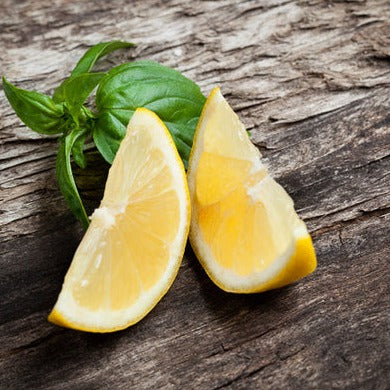
5. Basil, Lemon
-
Lemon Basil also called Hoary Basil (for its fuzzy stems), is a hybrid cross between traditional basil and lime basil. The bright green leaves have a sweet lemony aroma and a tangy lemon-anise flavor that’s best used fresh in seafood dishes, fruit salads, lemonade, cocktails, and salad dressings. Add at the end of cooking to preserve the citrus flavor, then garnish with the edible flowers. Harvest the leaves and stems from the top part of the plant, and pinch off edible flower buds as they appear, which prevents the leaves from turning bitter, and signals the plant to branch out and grow more leaves, making a bushier plant.
- Remedies: Memory & focus, headaches, inflammation, & stomach issues

6. Borage (Starflower)
-
Borage, also called Starflower, is a fast-growing flowering herb with bright blue star-shaped flowers and fuzzy stems and leaves, all edible and they taste like cucumber. Grows 1'-3' tall and reseeds liberally, so it can become invasive. Use the young leaves like spinach and the sweet little flowers as a charming garnish on salads and cakes, or frozen into ice cubes. Easy to dry and use as a refreshing herbal tea.
-
Remedies: Inflammation, Rhumatoid
arthritis

7. Chamomile
-
Roman Chamomile, also called English Chamomile, has been cultivated as a medicinal herb since Medieval times. This hardy, aromatic, mat-forming ground-cover perennial in the daisy family produces small white flowers with large yellow solid cone centers and aromatic, fern-like foliage. Easily spreads through both reseeding and creeping roots, and can become invasive. Use it to fill in space between stones or pavers, or create a fragrant, low-maintenance “chamomile lawn” like the royals do at Buckingham Palace. Both the apple-scented flowers and stems are used fresh or dried, and steeped into a calming herbal tea sipped before beddy-bye time.
- Remedies: Anxiety, cramps, digestion, ulcers, stress & insomnia

8. Dandelion
-
Dandelion forms lush heads of leaves that will rival your favorite lettuce. The leaves are tender, fleshy and dark green. The plants spread up to 2 ft and the vitamin rich leaves can be eaten raw, boiled, stir fried and used in soup.
The roots can be eaten raw, cooked or roasted and made into a coffee substitute. The flowers are used to make herbal tea and dandelion wine! - Remedies: Digestive issues, acne, & other skin problems

9. Daisy, Shasta
-
The Shasta Daisy (Leucanthemum x superbum) is a drought-tolerant perennial. Produces large 2" blossoms with long bright white petals around a golden yellow center. Grows 2'-4' tall on thin stems with narrow, serrated, dark green foliage. Long lasting in the garden and as a cut flower.

10. Hyssop
-
Hyssop has a long history of being medicinal herbal tea use. It was so highly esteemed in the past that it was considered to be a virtual cure-all.
- Remedies: Bronchitis, digestion issues, anxiety, colds & influenza

11. Lavender
-
Lavender is extremely popular for use in herbal tea recipes! It's sweet and fragrant. Perfect for reducing tension, curing headaches and calming your mind.
- Remedies: Acne, anxiety, depression, fibromyalgia, headaches, hypertension, insomnia & childbirth

12. Marjoram
-
Marjoram has an Oregano-like flavor. It can be used in many dishes including meats, stews, casseroles, poultry, sausages, and sauces. Can be used dried or fresh. Great flavor and taste. It can be used in potpourri or added to sachets for linen and clothing cupboards. Easy to grow in a small container.
- Fruity and sour in flavor, marjoram helps with poor appetite, liver problems, gas, stomach cramps and gallstones. Marjoram is known for its healing properties with rheumatoid pain, tension headaches and minor digestive problems.

13. Lemon Balm
-
Lemon Balm produces beautiful lemon scented leaves. The leaves are typically used in teas, sauces, salads, soups, stews, and drinks.
-
Known to stimulate the heart and calm the nerves.
- Remedies: Cardiovascular problems, colds, hypertension, childbirth, insomnia, & influenza

14. Mint, Lemon
-
Lemon Mint is the best! If you've never grown lemon mint before then it's sure to be your new favorite. The smell from these fragrant leaves will delight your senses. One of the best for adding some lemon flavor to your herbal teas. Did you know? In skin care, Lemon Mint leaves can be rubbed directly on the skin to fight off mosquitoes. The dried leaves can also be infused in oil made into lotions for soothing the skin.
-
Remedies: Nausea & digestion issues

15. Mint, Spearmint
-
Spearmint is typically popular in teas, jellies, deserts, and salads. Extremely fragrant sweet smelling. Can even be used as a garnish on ice cream and drinks!
- Remedies: Digestive issues, anxiety, & coughs
IMPORTANT: Always seek advice from a professional before growing and/or consuming seeds and/or plants for medicinal purposes.-
All-in-One Medicinal Herb Garden Seed Bank
$9999 USDUnit price /UnavailableDescription
Start a Medicinal Herb Garden
Grow natural medicinal remediesThe Herbal Medicine Seed Bank, a one-of-a-kind package designed to get you started growing herbs to cure illnesses the natural way. Can something be said for a sustainable lifestyle that involves curing with nature’s remedies? According to many doctors and scientists, the healing properties of herbs often surpass the performance of chemically produced drugs.
The Herbal Medicine Seed Bank makes a great addition to your food storage/survival-prep. It is designed to give you everything you need to start living off the land and growing your own herbal remedies. Use the seeds this year or store them for an emergency.
⚠️ Always seek advice from a professional before growing and/or consuming seeds and/or plants for medicinal purposes.
What's included:- 20 seed varieties
-
25 EXPANDING SEED STARTING SOIL PODS
- Seeds are individually packaged and labeled in resealable bags and then secured in a Mylar bag, which provides two layers of protection from moisture and light.
1. Anise
- Seed Count | Appx. 350 seeds
- Days to Maturity | 70 days
- Medicinal Properties | Digestive-aid, anti-flatulence agent, fights coughs and colds. Anise has a long history of medicinal use. It is still used all over the world as a digestive-aid and anti-flatulence agent. Anise has also been used for centuries relieve coughs and colds. In fact, scientists have even proven that the essential oils in the Anise seeds DO have expectorant properties. Anise can be used as a tea or syrup to aid in the relief from cough and congestion. Try a simple tea made from crushed seeds after a large meal - you will be surprised at how effective it can be.
2. Basil, Herb Mix
- Seed Count | Appx. 1,000 seeds
- Days to Maturity | 75 days
- Medicinal Properties | Basil has been used for thousands of years as a culinary and medicinal herb. It acts principally on the digestive and nervous systems, easing flatulence, stomach cramps, colic and indigestion. Basil also contains large amounts of (E)-beta-caryophyllene (BCP), which may have a use in treating inflammatory bowel diseases and arthritis.
3. Borage
- Seed Count | Appx. 300 seeds
- Days to Maturity | 80 days
- Medicinal Properties | Borage is a fairly common domestic herbal remedy that has been used since ancient times. It has a particularly good reputation for its beneficial affect on the mind, being used to dispel melancholy and induce euphoria. It is a soothing saline, diuretic herb that soothes damaged or irritated tissues. The leaves, and to a lesser extent the flowers, are demulcent, diaphoretic, depurative, mildly diuretic, emollient, expectorant, febrifuge, lenitive and mildly.
4. Mugwort
- Seed Count | Appx. 500 seeds
- Days to Maturity | 85 days
- Medicinal Properties | 85 days.
Artemisia vulgaris. Perennial. Plant produces beautiful fragrant leaves. Used to make tea to treat menstrual and menopausal problem. Stimulates and improves memory. Easy to grow.
5. Saponaria AKA Soapwort
- Seed Count | Appx. 175 seeds
-
Medicinal Properties |
6. Chamomile, German
- Seed Count | Appx. 1,700 seeds
- Days to Maturity | 90 days
- Medicinal Properties | Chamomile is sometimes known as "the plant doctor", because it is thought to help the growth and health of many other plants, especially ones that produce essential oils. It is thought to increase production of those oils, making certain herbs, like mints (spearmint, sage, oregano) and basil stronger in scent and flavour. These plants are best known for their ability to be made into a tea which is commonly used to help with sleep and is often served with either honey or lemon.
7. Chervil
- Seed Count | Appx. 450 seeds
- Days to Maturity | 90 days
- Medicinal Properties | Chervil has various traditional uses. Pregnant women were bathed in an infusion of it; a lotion of it was used as a skin cleanser; and it was used medicinally as a blood purifier. It was also claimed to be useful as a digestive aid, for lowering high blood pressure, and, infused with vinegar, for curing hiccups.
8. Coriander (Cilantro)
- Seed Count | Appx. 490 seeds
- Days to Maturity | 120 days
- Medicinal Properties | Coriander contains antioxidants. It has also been used as a folk medicine for the relief of anxiety and insomnia. Coriander has also been documented as a traditional treatment for diabetes.
9. Dill, Boquet
- Seed Count | Appx. 450 seeds
- Days to Maturity | 70 days
- Medicinal Properties | Dill has a very long history of herbal use going back more than 2,000 years. The seeds are a common and very effective household remedy for a wide range of digestive problems. An infusion is especially efficacious in treating gripe in babies and flatulence in young children. The seed is aromatic, carminative, mildly diuretic, galactogogue, stimulant and stomachic. It is also used in the form of an extracted essential oil. Used either in an infusion, or by eating the seed whole, the essential oil in the seed relieves intestinal spasms and griping, helping to settle colic. Chewing the seed improves bad breath. Dill is also a useful addition to cough, cold and flu remedies, it can be used with antispasmodics such as Viburnum opulus to relieve period pains. Dill will also help to increase the flow of milk in nursing mothers and will then be taken by the baby in the milk to help prevent colic
10. Fennel
- Seed Count | Appx. 1,000 seeds
- Days to Maturity | 85 days
- Medicinal Properties | Fennel has a long history of herbal use and is a commonly used household remedy, being useful in the treatment of a variety of complaints, especially those of the digestive system. The seeds, leaves and roots can be used, but the seeds are most active medicinally and are the part normally used. An essential oil is often extracted from the fully ripened and dried seed for medicinal use, though it should not be given to pregnant women. An infusion is used in the treatment of indigestion, abdominal distension, stomach pains etc. It helps in the treatment of kidney stones and, when combined with a urinary disinfectant like Arctostaphylos uva-ursi, makes an effective treatment for cystitis.
11. Lavender
- Seed Count | Appx. 300 seeds
- Days to Maturity | 85 days
- Medicinal Properties | Lavandula angustifolia. English Lavender is one of the most beautiful seeds you can plant in your garden. Lavender is an herb. The flower and the oil of lavender are used to make medicine. Lavender is used for restlessness, insomnia, nervousness, and depression. It is also used for a variety of digestive complaints, loss of appetite, vomiting, nausea, intestinal gas, and upset stomach. Some people use lavender for painful conditions including migraine headaches, toothaches, sprains, nerve pain, sores, and joint pain. It is also used for acne and cancer, and to promote menstruation. Lavender is applied to the skin for hair loss, and pain, and to repel mosquitoes and other insects. Some people add lavender to bathwater to treat circulation disorders and improve mental well being. By inhalation, lavender is used as aromatherapy for insomnia, pain, and agitation related to dementia. In foods and beverages, lavender is used as a flavor component.
12. Lemon, Mint
- Seed Count | Appx. 230 seeds
- Days to Maturity | 90 days
- Medicinal Properties | Annual plant that is covered with beautiful pinkish purple colored flowers. Lemon scented leaves that can be used as a replacement for lemon in any dish or tea. Plant grows to about 18" tall. These flowers are also great at attracting bees and hummingbirds - perfect for pollinating the other plants in your garden! In skin care, Lemon Mint leaves can be rubbed directly on the skin to fight off mosquitoes. The dried leaves can also be infused in oil made into lotions for soothing the skin.
13. Oregano - Italian
- Seed Count | Appx. 1,000 seeds
- Days to Maturity | 90 days
- Medicinal Properties | Hardy 2 ½ inch plant with pungent, oval leaves and purplish pink flowers. Use fresh or dried in sauces and soups.
Hippocrates used oregano as an antiseptic, as well as a cure for stomach and respiratory ailments. It is still used today in Greece as a palliative for sore throat. Oregano is also high in antioxidant activity, due to a high content of phenolic acids and flavonoids.
14. Parsley - Flat Leaf
- Seed Count | Appx. 550 seeds
- Days to Maturity | 75 days
- Medicinal Properties | Parsley is a commonly grown culinary and medicinal herb that is often used as a domestic medicine. The fresh leaves are highly nutritious and can be considered a natural vitamin and mineral supplement in their own right. The plants prime use is as a diuretic where it is effective in ridding the body of stones and in treating jaundice, dropsy, cystitis etc. It is also a good detoxifier, helping the body to get rid of toxins via the urine and therefore helping in the treatment of a wide range of diseases such as rheumatism.
15. Pepper, Cayenne
- Seed Count | Appx. 145 seeds
- Days to Maturity | 70 days
- Medicinal Properties | Cayenne pepper is known to help with high blood pressure. It is also known to clean the arteries and helps get rid of the bad LDL cholesterol and triglycerides. Cayenne is also extremely useful in alleviating allergies, muscle cramp, improving digestion, gives more pep and energy, and helps wound healing with minimal scar tissue.
16. Black Root (Scorzonera) - Appx. 500 seeds
17. Summer Savory
- Seed Count | Appx. 1,000 seeds
- Days to Maturity | 85 days
- Medicinal Properties | The Summer Savory plant grows tasty peppery flavored leaves. This is the herb to use if you want to flavor beans, cabbage, peas, and any other dishes. Widely used as a medicinal herb for curing sore throats. Use the leaves to make some tea and you'll be feeling great!
18. Thyme
- Seed Count | Appx. 1,000 seeds
- Days to Maturity | 85 days
- Medicinal Properties | Before the advent of modern antibiotics, Thyme was used to medicate bandages. It has also been shown to be effective against the fungus that commonly infects toenails. It can also be found as the active ingredient in all-natural, alcohol-free hand sanitizers.
19. Wormwood
- Seed Count | Appx. 1,700 seeds
- Days to Maturity | 65 days
- Medicinal Properties | Wormwood is a very bitter plant with a long history of use as a medicinal herb. It is valued especially for its tonic effect on the liver, gallbladder and digestive system, and for its vermicidal activity. It is an extremely useful medicine for those with weak and under-active digestion. Wormwood increases stomach acid and bile production, improving digestion and the absorption of nutrients. It also eases wind and bloating and, if taken regularly, helps the body return to full vitality after a prolonged illness. Use with caution, the plant should be taken internally in small doses for short-term treatment only, preferably under the supervision of a qualified practitioner. It should not be used by children or pregnant women
20. Yarrow
- Seed Count | Appx. 730 seeds
- Days to Maturity | 95 days
- Medicinal Properties | Yarrow has a high reputation and is widely employed in herbal medicine, administered both internally and externally. It is used in the treatment of a very wide range of disorders but is particularly valuable for treating wounds, stopping the flow of blood, treating colds, fevers, kidney diseases, and menstrual pain.
What is a Seed Bank?The answer is simple: a seed bank is your very own supply of open-pollinated, non-hybridized, NON-GMO seeds to be kept on hand in the case of an emergency or the unavailability of seeds.
There are many reasons to invest in a seed bank. Whether the market has changed or famine and war have changed the way we get access to seeds, these banks represent a secure way to begin planting quality foods.
All our seeds offer you the chance to replant the seeds after a successful harvest, making your investment in food one of the best values you will find. All of our seeds will produce organic produce when properly cared for.
While we remain optimistic about the future, we feel it is best to control your own food supply and live a healthier lifestyle with the best non-hybrid, non GMO seeds available today!
All-in-One Medicinal Herb Garden Variety Pack
$4999 USDUnit price /UnavailableDescription
All-in-One Medicinal Herb Variety Pack includes an assortment of our 15 most popular medicinal varieties. Seeds are all individually packaged.
The Herbal Medicine Seed Variety Pack makes a great addition to your food storage/survival-prep. It is designed to give you everything you need to start living off the land and growing your own herbal remedies.
IMPORTANT, PLEASE READ: ⚠️ These seeds can be extremely potent. Always seek advice from a professional before growing and/or consuming seeds and/or plants for medicinal purposes.1. Anise (appx. 100 seeds)
- Medicinal Properties | Digestive-aid, anti-flatulence agent, fights coughs and colds. Anise has a long history of medicinal use. It is still used all over the world as a digestive-aid and anti-flatulence agent. Anise has also been used for centuries relieve coughs and colds. In fact, scientists have even proven that the essential oils in the Anise seeds DO have expectorant properties. Anise can be used as a tea or syrup to aid in the relief from cough and congestion. Try a simple tea made from crushed seeds after a large meal - you will be surprised at how effective it can be.
2. Basil, HERB MIX (appx. 120 seeds)
- Medicinal Properties | Basil has been used for thousands of years as a culinary and medicinal herb. It acts principally on the digestive and nervous systems, easing flatulence, stomach cramps, colic and indigestion. Basil also contains large amounts of (E)-beta-caryophyllene (BCP), which may have a use in treating inflammatory bowel diseases and arthritis.
3. Lemon Balm (appx. 80 seeds)
- Medicinal Properties | The lemon balm plant produces beautiful lemon scented leaves. The leaves are typically used in teas, sauces, salads, soups, stews, and drinks. Lemon Balm tea is said to stimulate the heart and calms the nerves. A variety native of Europe. Perennial.
4. Chervil, French Parsley (appx. 100 seeds)
- Pregnant women were bathed in an infusion of it; a lotion of it was used as a skin cleanser; and it was used medicinally as a blood purifier. It was also claimed to be useful as a digestive aid, for lowering high blood pressure, and, infused with vinegar, for curing hiccups!
5. Sage (appx. 25 seeds)
- Medicinal Properties | The sage leaves can also be used as a digestive and nerve tonic.
6. Chamomile
- Medicinal Properties | Chamomile is sometimes known as "the plant doctor", because it is thought to help the growth and health of many other plants, especially ones that produce essential oils. It is thought to increase production of those oils, making certain herbs, like mints (spearmint, sage, oregano) and basil stronger in scent and flavour. These plants are best known for their ability to be made into a tea which is commonly used to help with sleep and is often served with either honey or lemon.
7. Cilantro/Coriander (appx. 80 seeds)
- Medicinal Properties | Coriander contains antioxidants. It has also been used as a folk medicine for the relief of anxiety and insomnia. Coriander has also been documented as a traditional treatment for diabetes.
8. Dill (appx. 100 seeds)
- Medicinal Properties | Dill has a very long history of herbal use going back more than 2,000 years. The seeds are a common and very effective household remedy for a wide range of digestive problems. An infusion is especially efficacious in treating gripe in babies and flatulence in young children. The seed is aromatic, carminative, mildly diuretic, galactogogue, stimulant and stomachic. It is also used in the form of an extracted essential oil. Used either in an infusion, or by eating the seed whole, the essential oil in the seed relieves intestinal spasms and griping, helping to settle colic. Chewing the seed improves bad breath. Dill is also a useful addition to cough, cold and flu remedies, it can be used with antispasmodics such as Viburnum opulus to relieve period pains. Dill will also help to increase the flow of milk in nursing mothers and will then be taken by the baby in the milk to help prevent colic.
9. Fennel (appx. 100 seeds)
- Medicinal Properties | Fennel has a long history of herbal use and is a commonly used household remedy, being useful in the treatment of a variety of complaints, especially those of the digestive system. The seeds, leaves and roots can be used, but the seeds are most active medicinally and are the part normally used. An essential oil is often extracted from the fully ripened and dried seed for medicinal use, though it should not be given to pregnant women. An infusion is used in the treatment of indigestion, abdominal distension, stomach pains etc. It helps in the treatment of kidney stones and, when combined with a urinary disinfectant like Arctostaphylos uva-ursi, makes an effective treatment for cystitis.
10. Amaranth (appx. 80 seeds)
-
Medicinal Properties | Do you have grey hair? Amaranth helps to prevent premature graying, mainly due to the minerals it contains. It helps to lower bad cholesterol and also can reduce inflammation and ease pain. Especially important for people suffering from diabetes, heart disease, and stroke. Great for tackling high blood pressure and may even help prevent cancer. Don't forget it is a wonderful source of protein.
11. Mint, Lemon (appx. 100 seeds)
- Medicinal Properties | Annual plant that is covered with beautiful pinkish purple colored flowers. Lemon scented leaves that can be used as a replacement for lemon in any dish or tea. Plant grows to about 18" tall. These flowers are also great at attracting bees and hummingbirds - perfect for pollinating the other plants in your garden! In skin care, Lemon Mint leaves can be rubbed directly on the skin to fight off mosquitoes. The dried leaves can also be infused in oil made into lotions for soothing the skin.
12. Catnip (appx. 240 seeds)
- Properties | It's said to have medicinal properties to relieve cold and flu symptoms. Catnip is also a VERY effective insect / mosquito repellent.
13. Summer Savory (appx. 220 seeds)
-
The Summer Savory plant grows tasty peppery flavored leaves. This is the herb to use if you want to flavor beans, cabbage, peas, and any other dishes. Widely used as a medicinal herb for curing sore throats. Use the leaves to make some tea and you'll be feeling great!
14. Wormwood (appx. 350 seeds)
-
Medicinal Properties | Wormwood is a very bitter plant with a long history of use as a medicinal herb. It is valued especially for its tonic effect on the liver, gallbladder and digestive system. It is an extremely useful medicine for those with weak and under-active digestion. Wormwood increases stomach acid and bile production, improving digestion and the absorption of nutrients. It also eases wind and bloating and, if taken regularly, helps the body return to full vitality after a prolonged illness. Use with caution, the plant should be taken internally in small doses for short-term treatment only, preferably under the supervision of a qualified practitioner. It should not be used by children or pregnant women.
15. Yarrow (appx. 100 seeds)
- Medicinal Properties | Yarrow has a high reputation and is widely employed in herbal medicine, administered both internally and externally. It is used in the treatment of a very wide range of disorders but is particularly valuable for treating wounds, stopping the flow of blood, treating colds, fevers, kidney diseases, and menstrual pain.
All-in-One Mosquito Repellent Garden Variety Pack
$3999 USDUnit price /UnavailableDescription
All-in-One Mosquito Repellent Garden Variety Pack includes an assortment of our 15 most popular varieties proven to fight-off mosquitoes.
Ordinary repellents and sprays are full of nasty chemicals that you probably don't want to put onto your family, and bug zappers are annoying. It also can be debated, how effective candles or incense really are.

Grow these plants in your garden to repel mosquitoes, naturally!Seeds are all individually packaged.

1. Basil, Italian Large leaf
- Appx. 120 seeds
-
The Italian Large Leaf Basil plant will produce medium to large leaves that can measure up to 4" long! It is an heirloom variety that is extremely fragrant. Grow basil in your backyard to control mosquitoes.

2. Basil, Lemon
- Appx. 120 seeds
-
Beautiful and flavorful small basil leaves. Leaves have a unique lemon scent. Very easy to grow. Basil emits its aroma without crushing the leaves. Grow basil in your backyard to control mosquitoes. Plant basil in pots so you can move them around easily. To keep the mosquitoes away from your body, rub a handful of crushed basil leaves on your skin.


3. Genovese Basil
- Appx. 120 seeds
-
Genovese Basil is a classic! It's prized for being sweet with undertones of a spicy flavor. You can't beat it's aroma. These plants grow anywhere from 18"-24" inches. Basil emits its aroma without crushing the leaves. Grow basil in your backyard to control mosquitoes. Plant basil in pots so you can move them around easily. To keep the mosquitoes away from your body, rub a handful of crushed basil leaves on your skin.

4. Catnip
- Appx. 240 seeds
-
Catnip is also a VERY effective mosquito repellent. According to ScienceDaily.com, nepetalactone, the essential oil in catnip that gives the plant its characteristic odor, is about ten times more effective at repelling mosquitoes than DEET — the compound used in most commercial insect repellents. Simply grow catnip near the backyard or patio of your house.

5. Lavender
- Appx. 50 seeds
-
Lavandula angustifolia, English Lavender, is one of the most beautiful seeds you can plant in your garden. The oils from lavender flowers are used to make medicines and many other household remedies. Lavender repels mosquitoes because mosquitoes dislike the scent of the lavender plant. The lavender plant is very easy to grow! To make a chemical-free mosquito solution, just mix lavender essential oil in water and apply directly on your skin. Plant lavender in pots around seating areas on your patio, backyard and garden to control mosquitoes.

6. Lemon Balm
- Appx. 80 seeds
-
The lemon balm plant produces beautiful lemon scented leaves. For an easy homemade repellent, crush lemon balm leaves and then rub them onto your skin. Keep the plants growing near doorways where the leaves will be readily available when you need them.

7. Lemon Grass
- Appx. 65 seeds.
Lemon Grass is a tropical plant that produces a thick grass that can even be used for flavoring many culinary dishes. It can also be used to make medicinal tea for the treatment of digestive issues and fever/flu-like symptoms. The long lemon grass leaves should be collected by snipping them off with scissors anywhere from mid summer on. Mosquitoes do not care for the fragrance of lemon grass. Grow these attractive "grasses" near walkways and near seating areas to deter them.

8. Herb Mix
- Appx. 120 seeds
-
Great multi-purpose variety to grow in your garden that grows well in containers. Basil emits its aroma without crushing the leaves. Grow basil in your backyard to control mosquitoes. Plant basil in pots so you can move them around easily. To keep the mosquitoes away from your body, rub a handful of crushed basil leaves on your skin.

9. Basil, Greek
- Appx. 120 seeds
-
Produces fragrant small green basil leaves with white flowers.
Excellent as a garnish or seasoning.
Greek basil is preferred by most culinary chefs. Can be grown indoors in containers.

10. Marigold, Sparky
- Appx. 120 seeds
-
Finely cut dark green leaves. Flat leaves. Use this parsley for garnishing, and culinary decoration. Tolerates heat better than most varieties.

11. Pennyroyal
- Appx. 100 seeds

12. Rosemary
- Appx. 20 seeds
-
Excellent flavor and extremely fragrant. Perfect to use fresh or dried. Can also be used to flavor many culinary varieties such as meats, soups, and sauces. And even used for treating headaches and known to improve circulation. Perfect for containers.

13. Sage
- Appx. 25 seeds
-
Burn a little sage over coals to repel mosquitoes! Works great.

14. Tansy
- Appx.100 seeds
-
Tansy (Tanacetum vulgare) is a perennial, herbaceous flowering plant of the aster family, native to temperate Europe and Asia. Tansy is a strong herb, beautiful & yet suitable for growing around doorways to act as an mosquito deterrent.

15. Wormwood
- Appx. 350 seeds
-
Wormwood can make a lovely, unique border and the strong odor does a good job of keeping mosquitoes at bay. Note: Do not rub on skin.
The threat of contracting a disease from a mosquito is very real. Not only are humans being infected with dangerous illnesses, so are animals including household pets. Over one million people are said to die each year from contracting diseases from mosquitoes. In the US, the most common disease is West Nile, but they also carry diseases like malaria, dengue fever, dog heartworm, chikungunya and the recent Zika Virus, which is responsible for outbreaks in tropical areas throughout the world and was found in 2015 for the first time in the Western Hemisphere. More can be learned about the Zika Virus, here.
Order your variety pack today and grow these plants in your garden to repel mosquitoes.- Appx. 120 seeds
All-in-One Pepper Garden Variety Pack
$3999 USDUnit price /UnavailableDescription
All-in-One Hot & Sweet Pepper Variety Pack includes an assortment of our most popular varieties. Seeds are all individually packaged. Packaged with zip-lock bag system for long-term storage and maximum seed protection.Includes all of the following varieties:
1. Anaheim Chili
- Appx. 10 seeds
- The Anaheim Chili Pepper is really quite mild. About one kick up from a bell pepper. This California native is called Hatch when grown in New Mexico and Seco del Norte when dried. Loads of long 6"-10" tapered peppers ripen from grassy green to forest to smoky red. Thick-skinned and fleshy, tangy and sweet, tasty when fresh or cooked into meat. Try chiles rellenos or corn chowder, or make it Seco and grind into powder.
2. Ancho Grande
- Appx. 10 seeds
- The Ancho Grande Pepper is named for its size—ancho is wide, grande is big. That’s when it’s dark red. While it’s still dark green, it’s called Poblano, which is named for a town in Mexico. And when it matures fully to dark brown, the name is Mulato. Vigorous, leafy plants produce grande amounts of tapered heart-shaped 4"-8" fruit with a mellow, smoky flavor and a little bit of heat. This fleshy, thick-skinned pepper is traditionally used for chiles rellenos and mole sauce, but you can probably think of a few more uses while you’re studying for the quiz about its name.
3. Pretty Purpl5
- Appx. 10 seeds
- The Big Jim Pepper is the world’s largest pepper variety, with a fruit that can grow to 14" or longer. Typically in the 6"-10" range, these wide, tapered summer icicles grow on compact plants and ripen from lime green to smoky crimson. Sweet and flavorful with a pleasurable crackle of heat. When roasted or grilled, the thick skin slips off easily, leaving tender, juicy, meaty flesh. If you do grow a Jim that needs a tape measure, fill one full of ham and havarti or crab and cream cheese, and feed your entire family plus a neighbor kid.
4. California Wonder Bell Pepper
- Appx. 10 seeds
- The California Wonder Pepper is so easy-going, it doesn’t mind if you call it Cal Wonder. Sturdy plants produce lots of smooth, blocky 3"-4" fruits with mostly four lobes and thick skin that ripen from peace, man green ✌️ to groovy orange to right-on red. Juicy and crunchy with sweet, mild flavor, and no heat. Eat fresh or stuff with chicken and avocado for a wonderful easy lunch.
5. Cayenne Long Thin Red
- Appx. 10 seeds
- The Red Cayenne Pepper will put a hop, a skip, and a kick in your step. Slender, glossy 5"-6" fruits grow abundantly on strong plants, bounding through all the primary colors as it matures from green to yellow to orange to red. Primarily used as a dried spice, but can be used fresh to rev up a salsa or to make pickling brine howl.
6. Caloro, Yellow Jalapeno
- Appx. 10 seeds
- The Caloro Pepper is a gilded name for the Yellow Jalapeño Pepper. If you grow these, it will help to have two things: lots of friends and lots of bags, because you are going to have lots of these hot peppers to share. This prolific plant produces 2"-3" tapered fruits continuously, all summer long, maturing from yellow to orange to red. Continuously. Yellow, orange, red. All summer long. Yellow, orange, red. Thick-skinned, sweet, and crunchy with a heat that’s milder than a Green Jalapeño, but still quite spicy. Yellow, orange, red. Continuously, all summer long.
7. Classic Green Jalapeno
- Appx. 10 seeds
- We’re not sure if the Jalapeño Pepper knows it, but this stocky little spark plug is one of the most famous and popular hot peppers in the world. At 7,500 SHUs, it sits at the lower end of the Scoville heat scale, which is hot enough to ignite your tongue, but not so hot you won’t take another bite. Prolific yields ensure a steady harvest of 3" glossy fruits that ripen from dark green to fiery red. In some countries, if it’s not illegal to make salsa with any other pepper, it’s at least frowned upon. Best not chance it.
8. Habenero - Red Caribbean
- The sweet, citrusy flavor, tropical fragrance, and lush green foliage of the Red Caribbean Habanero will remind you of a beach vacation. And so will the searing heat! Produces loads of small 1"-2" wrinkled fruits that twinkle in colors ranging from key lime green to sunrise yellow to sunset orange to sunburn red. Use it to make some haba-haba salsa, broiled halibut with charred pepper cream sauce, or spicy pineapple ice cream.
9. Banana
- Appx. 10 seeds
- Yellow, yellow, bo bellow, banana fana fo fellow…. The Yellow Banana Pepper is one of the mildest and most popular sweet peppers in America. When young, it is pale yellow, crunchy, sweet, and me my mo mellow enough for a youngster to eat. As it ripens from orange to red, it becomes softer and sweeter. Flavorful at any stage of growth, so pick one when you want one. Especially good pickled, but save a few to stuff or stir fry. Yell-ow!
10. Red Hot Cherry
- Appx. 15 seeds
- A Red Cherry type variety that grows into a bushy plant up to 3 feet tall. Higher heat levels than other Hot Cherry peppers. Has a nice robust flavor. Very easy to grow. Pods ripen to a Cherry Red color and get up to over 1 inch in diameter.
11. Santa Fe Grande
- Appx. 10 seeds
- The Santa Fe Grande Pepper is heat-tolerant, prolific, and cheerful. Produces a fiesta of 2"-4" waxy, tapered peppers that ripen through the rich, vibrant colors of the Southwest, from pale green to yellow to orange to red, with sweet, mild flavor and mild heat. So mild, it’s also called Chile Guero, which translates to “blonde chili,” but you might bite into a spicier one here and there. Grill them with onions for a festive topping for chicken or beef, or use as the colorful main ingredient in salsa or a pickle jar.
12. Serrano Tampiqueno
- Appx. 35 seeds
- The Serrano Tampiqueño Pepper “from the mountains” of Mexico opens up new vistas of heat and flavor. The prolific plant tolerates heat and drought, pushing out loads of 2"-3" cylindrical fruits with colors that range from from grassy green to fizzy orange to berry red, and are spicy at every mesa. Use to add flavor, heat, and syllables to pizza tampiqueño, salsa tampiqueño, steak tampiqueño, or pickles tampiqueño, or dry them and tampi into a queño.
13. Hungarian Wax
- Appx. 10 seeds
- Zippy and snappy, the Hungarian Hot Wax Pepper offers a little sweet and a little heat, producing loads of peppers earlier than other varieties. Long 6" tapered fruit ripens from green to creamy yellow, which is when it’s just getting zippy. If you leave it be, it will keep going to orange and then red, increasing the heat with each color change. Thin-skinned, meaty, and crunchy. Try pickling in apple cider vinegar, frying up with onions to top an omelet, or stuffing with prosciutto and provolone.
14. Chocolate Bell Pepper
- Appx. 10 seeds
- The Chocolate Bell Pepper is a fun one to grow. While the skin is maturing from green to brown, the inside is ripening from green to red, so you’re in for a surprise color combo with each one you snip off the vine. Crunchy and sweet with no heat. Ripens early, too.
All-in-One Perennial Flower Garden Variety Pack
$3999 USDUnit price /UnavailableDescription
NEW! This Perennial Flowers Variety Pack is a carefully curated selection that includes 15 of the most popular perennial flower seed varieties.Perennial flowers are defined by their ability to return year after year, making them a sustainable choice for gardeners looking to create lasting beauty in their landscapes.Perennial flowers typically bloom for a specific period each year, and their life cycle can span several years, often ranging from 3 to 10 years or more, depending on the species and growing conditions. This longevity not only enhances the aesthetic appeal of gardens but also contributes to the ecological balance by providing habitats and food sources for various pollinators, including bees and butterflies.
In addition to their aesthetic value, perennial flowers play a significant role in soil health. Their root systems help to stabilize soil, reduce erosion, and improve soil structure. Some perennial varieties are also known to enhance soil fertility by fixing nitrogen, which can benefit surrounding plants and contribute to a healthier garden ecosystem.
This variety pack serves as an excellent option for those looking to cultivate a vibrant and sustainable garden landscape.
Includes: 
Baby's Breath, scientifically known as Gypsophila, is a perennial flowering plant that is widely appreciated for its delicate, airy appearance and versatility in garden settings. This plant is characterized by its small, white or pink flowers that bloom in clusters, creating a cloud-like effect that can enhance the aesthetic appeal of any garden. Appx. 50 seeds

The Ox-Eye Daisy (Leucanthemum vulgare) is a perennial flowering plant that is commonly found in gardens and natural landscapes. This species is characterized by its distinctive white petals and yellow central disc, making it a popular choice for ornamental gardening. The plant typically reaches a height of 1 to 3 feet and blooms from late spring to early fall, providing a long-lasting display of flowers. Appx. 100 seeds

3. Daisy, Black-Eyed Susan (Rudbeckia Hirta) Flowers
The Daisy, specifically the Rudbeckia Hirta, is a perennial plant that is widely appreciated for its vibrant yellow flowers and its ability to thrive in various garden conditions. This species, commonly known as the Black-eyed Susan, belongs to the Asteraceae family and is native to North America. The plant typically reaches a height of 1 to 3 feet and produces flowers that can measure up to 3 inches in diameter. Appx. 50 seeds

The Common Chicory, scientifically known as Cichorium intybus, is a perennial herbaceous plant belonging to the Asteraceae family. This plant is notable for its adaptability and resilience, making it a valuable addition to various garden settings. With its striking blue flowers and robust root system, chicory not only enhances the aesthetic appeal of a garden but also contributes to soil health. Appx. 50 seeds

5. Columbine, McKana Giants Mix Flowers
The Columbine McKana's plant, scientifically known as Aquilegia caerulea, is a perennial flowering plant that belongs to the Ranunculaceae family. This plant is renowned for its distinctive, bell-shaped flowers that come in a variety of colors, including blue, purple, and white. The Columbine McKana's is particularly valued in garden settings for its ornamental appeal and ability to attract pollinators such as bees and hummingbirds. Appx. 20 seeds

6. Coreopsis, Lanceleaf Tickseed Flowers
The Lanceleaf Coreopsis (Coreopsis lanceolata), also called Lanceleaf Tickseed, is a drought-tolerant perennial. Produces large 2"-3" blossoms with bright yellow notched petals around a golden yellow center. Grows 1'-2' tall on thin stems with narrow, lance-shaped foliage. Blooms continuously throughout the summer. Appx. 40 seeds

7. Coneflower, Yellow Prairie (Mexican Hat) Flowers
The Yellow Prairie Coneflower (Ratibida columnifera), also called Mexican Hat, is the pure yellow form of the native Prairie Coneflower. Grows 15"-24" tall on slender stems with yellow petals that skirt a tall upright cone. This drought-tolerant droopy petaled daisy loves the heat. A cheerful mid-summer pick-me-up that blooms into fall. Appx. 20 seeds

8. Coneflower, Purple Echinacea Flowers
Echinacea, also called Purple Coneflower, is an easy care perennial in the daisy family. Blooms bunches of blossoms with lavender petals skirting a brown spiky cone center atop sturdy stems that can grow 2'-4' tall. The leaves, flowers, buds, stems, and roots have been used medicinally for centuries, both dried and fresh, as an herbal tea, tincture, and oil infusion. Plant a deep pot, a small plot, or an entire lot! Appx. 20 seeds

Roman Chamomile has many of the same uses, but is a low-growing, evergreen perennial groundcover with fewer, but larger flowers. You can determine which type of Chamomile you have if you cut open the yellow center of the flower. Roman has solid centers while German has hollow ones. Appx. 50 seeds

The heat- and drought-tolerant, frost-hardy perennial Blue Flax (Linum perenne) produces small 1" light blue five-petal blossoms on 2'-3' wiry stems with delicate foliage. The flower lasts only for a day, opening at dawn and dropping its petals by mid-day. And then another blooms tomorrow. Appx. 50 seeds

The Lavender Vera plant, scientifically known as Lavandula angustifolia, is a perennial herb renowned for its aromatic qualities and vibrant purple flowers. This plant is native to the Mediterranean region and has been cultivated for centuries due to its numerous benefits and applications in gardening, aromatherapy, and culinary arts. Appx. 50 seeds

The common milkweed (Asclepias Syriaca) is a perennial plant native to North America, known for its distinctive clusters of pink to purple flowers and its ecological significance. This plant typically grows to a height of 3 to 4 feet and thrives in a variety of soil types, preferring well-drained, sandy loam. It is commonly found in fields, roadsides, and disturbed areas, making it an adaptable choice for gardeners looking to enhance biodiversity. Appx. 45 seeds

The Scarlet Sage (Salvia coccinea), also called Blood Sage, Texas Sage, and Indian Fire, is a fast-growing, tender perennial in the mint family. Produces dense 10" spikes of small, tubular, bright red fragrant blossoms with long stamens. Grows 1'-3' tall on square stems with hairy, heart-shaped foliage. Can be grown as an annual in colder climates. A striking pop of color in any garden or vase. Appx. 50 seeds

14. Sunflower, Maximillian Flowers
The Maximillian Sunflower (Helianthus maximiliani) is a drought-tolerant perennial. Produces a 3"-5" blossom with veined, pointed bright yellow petals around a dark golden center. Grows 3'-10' tall on branching, hairy stems with multiple blooms per stem, and long, narrow, drooping foliage. Bold, robust, and cheerful. Appx. 30 seeds

15. Spotted Bee Balm, Wild Bergamot Flowers
The Spotted Bee Balm plant produces a beautiful plant with purple spotted flowers known to attract bees and other beneficial garden pollinators Common names: bee balm, horsemint, oswego tea, and wild bergamot. Smell is similar to Thyme. Has been used in teas and for other medicinal purposes. This plant is drought tolerant. Grows well in dry conditions, requiring little water to grow Can grow up to 40" tall! Perennial. Appx. 90 seeds
All-in-One Quick-to-Mature (45 days or less!) Garden Variety Pack
$3999 USDUnit price /UnavailableDescription
NEW! Quick-to-Mature Garden Variety Pack includes an assortment of our 15 most popular seed varieties that mature super fast!Features a carefully curated assortment of seeds that mature in ONLY 45 DAYS OR LESS, making it an ideal choice to enjoy the fruits of your labor in a short amount of time. By selecting this pack, you can expect not only a bountiful harvest but also the satisfaction of cultivating your own food -- extremely quickly.
Includes: 1. Arugula - Roquette (Rocket)
Roquette Arugula (also called Rocket) is one of the easiest leafy greens you can grow. The leaves of the Arugula plant are deliciously tangy/peppery in flavor. The young seed pods, flowers, leaves, and mature seeds are all edible. Ready to harvest in only 20 days for baby greens! Appx. 150 seeds
2. Carrot - Paris Market, 2" Round
The Paris Market Carrot (Daucus carota) is a tender, adorable 2" round carrot with very sweet flavor. Grows well in containers, shallow beds, and rocky soil. Half-hardy to frost and light freezes. Good steamed, roasted, and fresh. Ready to harvest in 35 days! Appx. 150 seeds
3. Corn Salad (Mache - Lamb's Lettuce) - Dutch
Corn Salad has a delicate flavor, similar to a butterhead lettuce. It is quite hardy and requires very little care while remaining practically free of pests & disease. Corn salad is also known for growing vigorously in almost any soil. Matures in only 40 days! Appx. 200 seeds
4. Lettuce - Gourmet/Mesclun Mix
A mixture of favorite lettuce seed varieties from across the spectrum of lettuce types. Plant heavy and start harvest early for young for baby greens then allow some to grow on for plenty of variety for salads. A great way to get a lot out of little space. Perfect for container gardening. Ready to harvest in as little as 35 days! Appx. 200 seeds
The Tom Thumb lettuce produces a small, round head with delicate yet delicious leaves - This variety can be planted close together - Ideal for small spaces - Grows well in containers on a patio or windowsill. Ready to harvest in 40 days! Appx. 180 seeds
Winter Density lettuce is known to be heat and frost tolerant - ideal for growing all season long. Needs cold temps to germinate but will continue to grow all-season. Dark green leaves grow over 9" long. Similar to Romaine lettuce and Butterhead lettuce. Ready to harvest in as little as 30 days! Appx. 200 seeds

A traditional Southern favorite. Plant produces good yields of green mustard leaves. Excellent flavor. Makes a great garnish to any dish. Easy to grow & ready to harvest in as little as 35 days! Appx. 50 seeds

The Easter Egg Radish is just as the name suggests ... a mix of flavorful multi-colored radishes. Radishes are red, pink, purple, violet, and white. Excellent in salads. Extremely easy to grow. Grows well in small spaces. Ready to harvest in only 25 - 30 days! Appx. 120 seeds

AAS - All-America Selections Winner - The Champion Radish plant produces large and extremely tasty red cherry radishes They measure about the size of a silver dollar and have bright red solid skin One of the most popular and easiest radishes you can grow anywhere Grows well in small spaces. Ready to harvest in only 25 - 30 days! Appx. 120 seeds

Bloomsdale Spinach will produce heavy, glossy, dark green leaves - Excellent flavor. Extremely easy to grow. Ready to harvest in 45 days! Appx. 70 seeds

11. Swiss Chard - Barese "Baby Leaf" Dark Green
The Barese Swiss Chard variety produces delicious tender 10" tall dark glossy green leaves with curled edges. A delicious baby leaf that grows quickly. Ready to harvest in less than 30 days. Plant produces good yields of 10" tall leaves. Excellent for salads and/or steamed with others greens. Harvest in less than 30 days! Appx. 25 seeds

12. Squash (Summer) - Crookneck, Yellow
The Early Summer Crookneck is a popular Heirloom squash variety that grows extremely quickly! Grows as a compact bush size plant (not as a vine). Produces delicious and beautiful yellow 8" long fruits with a thin curving neck. This fast-growing summer squash produces large yields. Perfect for growing in small spaces. Ready to harvest in 45 days! Appx. 10 seeds

13. Squash (Summer) - Round de Nice Zucchini
The Round Zucchini plant is a very popular heirloom squash variety that grows extremely quickly! Grows as a compact bush size plant (not as a vine) Produces delicious and beautiful 3" round fruits with yellow flesh. Fast-growing summer squash produces large yields. Perfect for growing in small spaces. Ready to harvest in only 45 days! Appx. 10 seeds

14. Tomato - Sub Arctic Plenty (Determinate)
The Sub Arctic Plenty (Early) Tomato is trying to tell you something: It produces a lot of fruits very quickly (45 days!), and really likes cooler temps. It would also like you to know that you can quickly (45 days!) grow the plants closer together without a stake or cage, or in a container or hanging basket. One more thing: It doesn’t sacrifice flavor or texture by ripening so many fruits so quickly (45 days!). You’ll harvest clusters of robust, red, juicy, tart, smallish medium-sized fruits in only 45 days! :) Appx. 15 seeds

15. Tomato - Tiny Tim (Determinate)
The Tiny Tim Tomato could not be more adorable. This dwarf variety grows to only about 12"-18", and thrives in the coziness of a small pot or window box, even indoors in a sunny spot. At 1", the adorable red fruit is smaller than a cherry tomato, so you can get more in a handful. And the flavor. A little sweet, a little tart. Just so very adorable and delicious. Harvest in only 45 days! Appx. 15 seeds
☞ Want to harvest even sooner? Try growing your own sprouts & micro-greens! Ready to consume in only 7 - 10 days! Shop all sprouts & micro-greens here: https://www.seedsnow.com/collections/shop-sprouting-seeds
All-in-One Root Crop Garden Variety Pack
$3999 USDUnit price /UnavailableDescription
All-in-One Root Crop Variety Pack includes an assortment of our 15 most popular varieties. Seeds are all individually packaged with a zip-lock Mylar bag system for long-term storage & maximum seed protection. Includes all of the following varieties:
1. Beet - Boltardy (Appx. 20 seeds)
-
The Boltardy Beet is a Detroit-type beet originating from Holland which has a beautiful deep-red, ringless flesh and very smooth skin. Boltardy Beets are extremely hardy. Can withstand cool weather. Highly resistant to bolting. 60 days Days to Maturity

2. Beet - Bulls Blood (Appx. 20 seeds)
- This heirloom beet is grown for its tender, sweet, deep red-burgundy foliage, but the beets are tasty when harvested when they are 2 - 3". The leaves reach 18" tall. Its dark leaves contrast nicely with many garden plants. Easy to grow. 60 Days to Maturity

3. Beet - Chioggia (Appx. 20 seeds)
- A rare heirloom beet variety introduced to the United States in the 1840's from Italy. The Chioggia beet produces excellent yields of some of the sweetest pink skinned beets. Chioggia beets have red & white rings. Perfect for juicing, boiling, pickling, baking, and/or freezing. Leaves can also be used as greens. 60 Days to Maturity

4. Beet - Detroit Dark Red (Appx. 20 seeds)
- This is an all-time favorite beet variety. Recommended by USU. The most popular beet on the market. The 2 ½ to 3 inch globe shaped roots are tender and sweet. The roots and leaves of the beet have been used in folk medicine to treat a wide variety of ailments. 60 Days to Maturity

5. Beet - Early Wonder (Appx. 20 seeds)
- Early, round, smooth-skinned beets are exceptionally tender. Ready to harvest in as little as 50 days! Easy to grow. 50 Days to Maturity

6. Carrot - Amarillo Yellow (Appx. 120 seeds)
- Amarillo Yellow heirloom carrot has an 8" long yellow root with bright yellow flesh. Sweet flavor and extremely tender. Easy to grow. Grows well in containers and raised beds. Very popular heirloom variety. 75 Days to Maturity

7. Carrot - Autumn King (10" long) (Appx. 100 seeds)
- The Autumn King carrot is one of the more popular varieties to grow. It's split-resistant skin turns to a deep dark orange/red color as it matures. One of the largest of carrots! Grows 10" - 12" long. Easy to grow in sandy soil. A favorite to many home growers. 70 Days to Maturity

8. Carrot - Danvers (7" long) (Appx. 150 seeds)
- The Danvers carrot outperforms all other carrots in heavier soils. 7" long and 2" thick with thickly tapered ends. Tender and very sweet. Carrots are a sun-loving plants that also like the cold. Just keep them consistently watered and they'll be happy. 70 Days to Maturity

9. Carrot - Little Fingers (4" long) (Appx. 200 seeds)
- The Little Finger carrots are one of the quickest to grow. 4" cylindrical roots Very tender and sweet variety. Many can be grown in a small space. Carrots are a sun-loving plants that also like the cold. 50 Days to Maturity
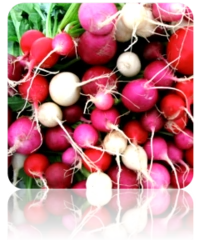
10. Radish - Easter Egg (Appx. 120 seeds)
- The Easter Egg Radish is just as the name suggests ... a mix of flavorful multi-colored radishes! Radishes are red, pink, purple, violet, and white. Excellent in salads. Extremely easy to grow. Grows well in small spaces. 40 Days to Maturity

11. Radish - Pink Beauty (Appx. 160 seeds)
- Produces beautiful pink radishes with a white flesh. Looks amazing! Great for culinary dishes. The white flesh is crisp and mild in flavor. Great for selling at farmers markets. Unique and rare heirloom radish. Grows well in containers and small spaces. 30 Days to Maturity

12. Rutabaga - American Purple Top (Appx. 100 seeds)
- Recommended by USU. Large 5 to 6 inch roots are purple and yellow colored, nearly round. Flesh is yellow, mild and fine grained. 90 Days to Maturity

13. Turnip - Purple Top / White Globe (Appx. 100 seeds)
- Smooth round roots, 4 to 6 inches across are purple on top and white below. Flesh is white, mild, and crisp. Stores well Extremely healthy and nutritious. Very easy to grow. 55 Days to Maturity

14. Turnip - Golden Globe (Appx. 140 seeds)
- A beautiful and delicious turnip with golden color and amazing flavor. The quality and tenderness is best when harvested at 3”. Plant in early spring and/or fall. 55 Days to Maturity

15. Parsnip - Harris Model (Appx. 50 seeds)
- Harris Model Parsnips are 3½" in diameter by up to 12" long. The flesh is white and extremely tender. One of the most popular parsnip varieties around! Very easy to grow - similar to carrots.
-
The Boltardy Beet is a Detroit-type beet originating from Holland which has a beautiful deep-red, ringless flesh and very smooth skin. Boltardy Beets are extremely hardy. Can withstand cool weather. Highly resistant to bolting. 60 days Days to Maturity
All-in-One Salsa Garden Variety Pack
$4499 USDUnit price /UnavailableDescription
All-in-One Salsa Garden Pack includes an assortment of our 15 most popular varieties for you to grow in your garden and harvest fresh ingredients right from your own backyard to make your favorite salsa (pico de gallo) recipes. Seeds are all individually packaged. Packaged with zip-lock re-sealable bag system for long-term storage and maximum seed protection.
Includes all of the following varieties:

1. Coriander/Cilantro (Appx. 80 seeds)
-
This slow-bolting strain is grown primarily for its broad, deep green, celery-like, pungent foliage. - Used in Oriental and Mexican cuisine - Must have in any salsa or pico de gallo recipe.

2. Onion, Southport Red, Long Day (Appx. 100 seeds)
-
Red Southort is a long day variety that produces medium-sized white globe onions. A crisp and mild-flavored onion. Perfect for salads and many other culinary creations. Grows well in containers and small spaces. Easy to grow.

3. Onion, Tokyo Long White (Appx. 80 seeds)
- The Tokyo Long White Bunching Onion – or Scallion – is an extremely tasty Japanese variety that grows well throughout the United States.

4. Onion, Evergreen (Appx. 100 seeds)
- This plant produces very long and slender bunching onions.If you like scallions, you'll love this variety. Extremely popular. A must have for any onion-lover!

5. Onion, White Sweet Spanish (Appx. 100 seeds)
- The White Sweet Spanish variety will produces a globed shaped white onion. - Long day. - This is one of the most popular white onion varieties available.


6. Pepper, Ancho Grande (Appx. 10 seeds)
- The Ancho Grande Pepper is named for its size—ancho is wide, grande is big. That’s when it’s dark red. While it’s still dark green, it’s called Poblano, which is named for a town in Mexico. And when it matures fully to dark brown, the name is Mulato. Vigorous, leafy plants produce grande amounts of tapered heart-shaped 4"-8" fruit with a mellow, smoky flavor and a little bit of heat. This fleshy, thick-skinned pepper is traditionally used for chiles rellenos and mole sauce, but you can probably think of a few more uses while you’re studying for the quiz about its name.


7. Pepper, Jalapeno (Appx. 15 seeds)
- We’re not sure if the Jalapeño Pepper knows it, but this stocky little spark plug is one of the most famous and popular hot peppers in the world. At 7,500 SHUs, it sits at the lower end of the Scoville heat scale, which is hot enough to ignite your tongue, but not so hot you won’t take another bite. Prolific yields ensure a steady harvest of 3" glossy fruits that ripen from dark green to fiery red. In some countries, if it’s not illegal to make salsa with any other pepper, it’s at least frowned upon. Best not chance it.
.


8. Pepper, Fresno Chili (Appx. 20 seeds)
- The Fresno Chili Pepper is a fun one to follow as it grows. The immature green fruit starts out pointing upward, and has a green, grassy flavor with mild heat. As the color changes through orange to bright red, the fruit hangs down, and the flavor changes to smoky and fruity with a bit more heat than a Jalapeño. These 3" tapered peppers are large enough to stuff, and small enough to pickle. Traditionally used to liven up ceviche, but it’s okay to grill that fish instead and make tacos topped with Fresno chili sauce. Excellent for roasting on the BBQ - or even pickling.


9. Pepper, Poblano (Appx. 15 seeds)
- Plant produces really good yields of green peppers that sometimes take on the shape of a heart. These Poblano peppers aren't to hot. Perfect for making rellanos and chili powder. Overall, it's a great pepper variety to have in your garden.

10. Pepper, California Wonder Bell (Appx. 15 seeds)
- The California Wonder Pepper is so easy-going, it doesn’t mind if you call it Cal Wonder. Sturdy plants produce lots of smooth, blocky 3"-4" fruits with mostly four lobes and thick skin that ripen from peace, man green ✌️ to groovy orange to right-on red. Juicy and crunchy with sweet, mild flavor, and no heat. Eat fresh or stuff with chicken and avocado for a wonderful easy lunch.


11. Tomato, Roma (Appx. 15 seeds)
- The Roma Tomato is the quintessential plum/paste tomato. Light on seeds and juice, it has thick fruit walls and dense flesh that holds onto seasonings and spices. Ever so good cooked into a thick sauce or paste, canned, or pureed. Compact plants produce meaty, egg-shaped fruits that are sweet and tangy. Skip the flavorless ones at the grocery store and grow your own Romas this summer.

12. Tomato, San Marzano (Appx. 10 seeds)
- Can a tomato be a celebrity? Ask the San Marzano Tomato—if you can get past its bodyguards. One commercial grower proclaims it the “gold standard for taste.” Martha Stewart devoted an entire blog post to it. Certified tomatoes from Italy are regulated. It even has its own Wikipedia page. But at the end of the day, it’s still just a tomato. One that’s longer and thinner than other plum/paste tomatoes, with exceptional tomato flavor, meaty and thin skinned for slicing, few seeds and fleshy for saucing, and very high yields. We’ve joined the fan club. How about you?
.

13. Tomato, Creole (Appx. 15 seeds)
- The Creole Tomato produces juicy fruit with a sunny sweet flavor. Performs well in hot, humid climates. Surprisingly firm and meaty flesh is great for fresh eating, and can hold up to grilling or a cheesy tomato pie.

14. Tomatillo, Classic (Appx. 10 seeds)
- These tomatillo seeds will produce delicious 3-5 ounce fruits. Tomatillo is popularly used to make salsas.

15. Tomatillo, Verde (Appx. 10 seeds)
- The Verde Tomatillo plant produces medium 3 ounce fruits. Tomatillo is popularly used to make salsas.
-
All-in-One SAVE THE BEES! Garden Variety Pack
$3999 USDUnit price /UnavailableDescription
NEW! All-in-One SAVE THE BEES! Garden Variety Pack includes an assortment of our 15 most popular varieties which we have found bees seem to really be attracted to their flowers.
 Are you interested in learning more about what you can do to to help save the bees? Most gardeners start at home by making small changes to their gardens and landscapes but the rewards are anything but small. They are able to invite a larger bee population into their gardens which is good for everyone! Gardeners may experience better pollination with their fruits and vegetables, and the bees have a safe haven to come, feed, and pollinate. Read more about "How To Start a Bee Friendly Garden", here!
Are you interested in learning more about what you can do to to help save the bees? Most gardeners start at home by making small changes to their gardens and landscapes but the rewards are anything but small. They are able to invite a larger bee population into their gardens which is good for everyone! Gardeners may experience better pollination with their fruits and vegetables, and the bees have a safe haven to come, feed, and pollinate. Read more about "How To Start a Bee Friendly Garden", here!
Plant these seeds in your garden to attract bees, naturally! Seeds are all individually packaged.
1. Basil, Greek Ocimum basilicum. Annual plant. Produces fragrant small green basil leaves with beautiful flowers. Can be grown indoors in containers. Very easy to grow. Extremely powerful smell. You will love this variety.
2. Bean, Blue Lake The Blue Lake Bush Bean produces long and tender stringless pods. Easy to grow and matures quickly. Pods can get as long as 5" Excellent flavor with firm texture and rich colors Beans mature all at once making it an easy harvest High in vitamins A, B and C.
3. Borage Borage is a special "honey plant". It is often grown nearby apiaries to provide food for developing young bees and for honey collection, too. 4. Blue Flax Flowers Each flower is packed with nectar and pollen which provides food for our bees.
5. Cardoon (Artichoke Thistle) Cardoons or Artichoke Thistles, are one of the most beautiful ornamental plants you can grow, and few plants are more attractive to bees.
6. Catnip Bees absolutely love Catnip. You'll find your plants will be swarming with them!
7. Cucumber, Lemon Bees really enjoy cucumber plants. This variety is great because each plant will have quite a few flowers with a good bit of nectar in each.
8. Dill Dill is a widely used herb that has a delicate flavor. It's extremely versatile. Allow it to flower, and you'll have plenty of bees swarming happily around your garden.
9. Fennel Fennel pollen can be harvested from the tiny flowers, which can easily be grown in the garden by letting your plants go to seed. Bees and other pollinating insects both like fennel - so every one wins!
10. Honey Scatter Garden Wildflower Mix Plant this mix of wildflowers to attract beneficial pollinatora!
11. Lemon Mint This flower is a "pollinator star" species! It is attractive to both native bees and butterflies.
12. Oregano Nothing is more attractive to honeybees than the culinary oregano!
13. Pumpkin, Wee Be Little Pumpkin pollen is usually large and quite sticky. Bees tend to be the best pollinators.
14. Rosemary Plant this close to other flowering shrubs and you'll be surprised with how many bees stop by to visit!
15. Squash, Delicata Male "squash-bees" will be busy going between flowers searching for mates. Females forage at the flowers of squash plants, which are their source for pollen.
All-in-One Spring/Summer Garden Variety Pack
$3999 USDUnit price /UnavailableDescription
All-in-One All-in-One Spring/Summer Variety Pack includes an assortment of our 15 most popular varieties that grow best during the spring & summer months.The seeds are all individually packaged for long-term storage and maximum seed protection.Includes all of the following varieties:1. Basil, Genovese (appx. 120 seeds)
Genovese Basil is a classic! It's prized for being sweet with undertones of a spicy flavor. You can't beat it's aroma. These plants grow anywhere from 18"-24" inches and is the variety of choice for making pesto and adding to pizzas.2. Carrot, Tendersweet (appx. 160 seeds)
One of the sweetest and best tasting carrots you can grow. Skinny 7" tapered roots. Easy to grow. Carrots are a sun-loving plants that also like the cold. Just keep them consistently watered and they'll be happy.3. Chives (appx. 115 seeds)
Also known as Garlic Chives. A perennial plant that grows narrow, grass-like leaves that have a mild onion-like flavor.- Chives are rich in vitamins A and C, contain trace amounts of sulfur, and are rich in calcium and iron. Used for many culinary creations. Perfect for containers and small spaces. The plant will grow to about 12" tall4. Cilantro/Coriander (Appx. 80 seeds!)
This slow-bolting strain is grown primarily for its broad, deep green, celery-like, pungent foliage. Used in Oriental and Mexican cuisine. Use seed to flavor meats, pickles and baked goods5. Cucumber - Marketer (appx. 30 seeds)
The Marketer cucumber is a popular All-America Selections (AAS) Winner! Produces extremely flavorful 9" long dark green cucumbers. Excellent for slicing and salads. Perfect for any sized home garden (and market growers).6. Mint, Spearmint (appx. 280 seeds)
Spearmint is typically used in teas, jellies, deserts, and salads. Extremely fragrant. Sweet smelling. Mentha spicata. Perennial. Can be used as a garnish on ice cream and drinks.7. Pea, Oregon Sugar Pod (appx. 280 seeds)
Mammoth type snow pea with excellent flavor and easy to grow Excellent quality, string present as pod matures. Resistant to Enation Virus, Powdery Mildew and Common Pea Wilt. Vine height 16-30". 4" light green pea pods.
8. Pepper, California Wonder Bell Pepper (appx. 280 seeds)
Large yields of large, mostly 4 lobed, thick-walled fruit that is mild and sweet.Day to Maturity: 75 days9. Pepper, Jalapeno (appx. 25 seeds)
Slightly larger fruit and taller plant with heavy yield. This Jalapeno pepper will produce over a longer period of time. Days to Maturity: 70 days10. Rosemary (appx. 20 seeds)
Excellent flavor. Extremely fragrant. Perfect to use fresh or dried. Can be used to flavor many culinary varieties such as meats, soups, and sauces. Can be used for treating headaches and known to improve circulation. Perfect for containers. Plant Height: 36"11. Squash (Summer) - Black Beauty Zucchini (appx. 10 seeds)
An All America Selections (AAS) Winner. The Black Beauty Squash is one of the most popular varieties on the market. Grows as a compact bush size plant (not as a vine). Produces a dark green, glossy fruit, which is long, straight & slender. Firm, very tender, with excellent flavor.
12. Squash (Summer) - Yellow Crookneck (appx. 10 seeds)
The Early Summer Crookneck is a popular Heirloom squash variety that grows extremely quickly - only 45 days!- Grows as a compact bush size plant (not as a vine)- Produces delicious and beautiful yellow 8" long fruits with a thin curving neck- Fast-growing summer squash produces large yields- Perfect for growing in small spaces13. Thyme (appx. 350 seeds)
Plant spreads to form attractive 8 to 12 inch high mounds.- Aromatic and flavorful leaves- Used to flavor meats, dressings, soups, and stews. Day to Maturity | 80 days14. Tomato, Red Cherry (appx. 15 seeds)
The Small Red Cherry tomato plant produces a lot of small red tomatoes on a tall plant.- Grows 1 1/4" large, sweet, and firm fruits.- Continues to grow for an extended period of time.- Cherry tomatoes have some of the most excellent flavor.- Very easy to grow.- Indeterminate.15. Tomato, Roma (appx. 15 seeds)
Excellent yields of bright red, medium-small, large shaped fruits. Popular for cooking, canning, and paste. Very popular variety. Produces vigorous vines.
Determinate.All-in-One Tomato Garden Variety Pack
$3999 USD$4499Unit price /UnavailableDescription
All-in-One Tomato Variety Pack includes an assortment of our 15 most popular tomato seed varieties. Seeds are all individually packaged. Packaged with zip-lock bag system for long-term storage and maximum seed protection.
- Zipper-top closure and bottom fold
- Resealable
Includes all of the following varieties:
1. Beefsteak (Ponderosa Red) (Appx. 15 seeds)
-
The Ponderosa Red Beefsteak Tomato produces meaty, bright red fruit with mild, sweet flavor. This low-acid ribbed slicer has very few seeds, so there’s more flesh to savor. Strong vines support heavy production, so stake well. Eat them any way you can think of.
- 75-80 days to maturity

2. Black Krim (Appx. 15 seeds)
- The Black Krim Tomato is as unusual as it is flavorful. Hailing from the Black Sea region of Russia, this robust tomato ripens to a unique mix of deep brown shoulders atop smoky red bodies with reddish-green flesh. Reliably produces ½-1lb fruits with a rich, slightly salty flavor. Dress up a sandwich or cook up a Khrenovina sauce.
- 75-80 days to maturity

3. Bonny Best (Appx. 15 seeds)
- The Bonny Best Tomato has a century-old reputation as a canning and ketchup tomato due to its small seed core, acidity, and firm texture, but it’s secretly great as a fresh slicer. This high-yielder produces picture-perfect medium, round, bright red fruits with hearty flavor. A great all-around tomato with many flavorful uses.
- 75-80 days to maturity
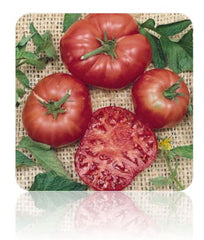
4. Brandywine Pink (Appx. 15 seeds)
-
The Pink Brandywine Tomato has lightly ribbed shoulders and potato-leaf foliage. Whether that’s the reason no two are alike, only the tomato knows. The vigorous vine takes its time to ripen the 1-2 lb blushing pink fruit with a small seed core. A beautiful slicer with a sweet, tangy flavor to look forward to late in the season.
-
85-90 days to maturity

5. Cherokee Purple (Appx. 10 seeds)
- With deep purple shoulders and a dusky pink body, the Cherokee Purple Tomato is a stunner in the garden. Slice open this beefsteak to reveal red flesh tinged with purple, brown, and green. Low acidity and sweet, slightly smoky flavor has made this a favorite of tomato lovers for more than 130 years. Will this be the year it becomes your favorite?
-
70-90 days to maturity
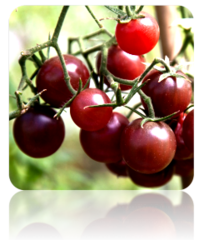
6. Cherry Chocolate (Appx. 15 seeds)
- The Black Cherry Tomato is a rather mysterious one. But first let us tell you about its well-known attributes. It produces large clusters of small, uniformly round 1" fruits with rich, sweet flavor. The mystery is whether these little gems will ripen to an onyx, mahogany, or amethyst color in your particular growing conditions.
- 75-80 days to maturity

7. Homestead (Appx. 15 seeds)
- On any productive homestead, every member needs to pull its weight, and the Homestead Tomato out-tomatoes every tomato. Sun up to sun down, in high heat and humidity, this workhorse churns out large, red, smooth, sturdy, meaty, juicy slicers. As comfortable in the overalls of a sandwich as it is done up in its Sunday best for the canner. Just a good ol’ heirloom with good old-fashioned tomato flavor.
- 75-80 days to maturity
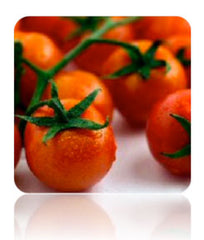
8. Large Red Cherry (Appx. 15 seeds)
- If we were going to write a short intro about the Large Red Cherry Tomato, we wouldn’t describe them as “cute little things,” decorating your garden like “heavy clusters of small, ruby jewels” that are “bursting with sweet flavor,” and suggest you “mix them with Black Cherry Tomatoes for an ode to a ladybug." No. We would write it in the bullet points, like this:
- Cute little things
- Clusters of small, ruby jewels
- Sweet flavor
- Mix with Black Cherry Tomatoes for an ode to a ladybug 🐞

9. Rio Grande (Appx. 15 seeds)
- The Rio Grande Tomato is a classic plum/paste tomato that gets along with heat, humidity, and drought, but that’s only one of its maravilloso qualities. The plant produces muchos bright red, egg-shaped fruits with a flavor that’s well-balanced between dulce and acidic. Especially bueno for pastes and sauces, but it wouldn’t mind being chopped up into fresh pico de gallo with a little onion, jalapeño, and cilantro.
- 75-80 days to maturity
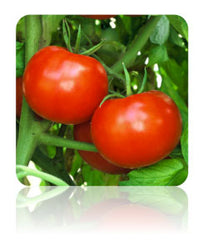
10. Rutgers (Appx. 15 seeds)
-
The Rutgers Tomato has all the best tomato qualities—medium tomato size, smooth tomato skin, bright red tomato color, slightly flattened tomato shape, old-fashioned tomato flavor, compact tomato plant, reliable tomato production, generous tomato yields, and kind to animals. A tomato you can take home to meet the family.
-
75-80 days to maturity

11. Small Red Cherry (Appx. 15 seeds)
- The Small Red Cherry Tomato produces small red cherry tomatoes. Not Large Red Cherry Tomatoes. Small ones and lots of them. Small, like ½" small. Bursting with flavor
- 70-80 days to maturity

12. Red Pear
- With a history as old as America herself, the Red Pear Tomato has been a delicious tradition in thousands of gardens. Vigorous vines are loaded with hundreds of small, sweet pear-shaped fruits with a nice acidic bite. Early maturity is a bonus for Northern zones with a short growing season. Try roasting or pickling them for your Fourth of July celebration.
- 75-80 days to maturity
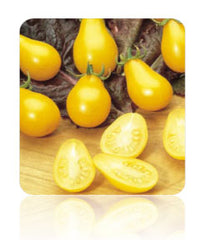
13. Yellow Pear (Appx. 15 seeds)
- We don’t say this about a lot of tomatoes, but the Yellow Pear Tomato really should be grown in every garden. We also don’t say this about a lot of tomatoes: It’s prolific. Ripens loads of lemon-yellow, pear-shaped 1"-2" fruits that are delicious straight off the vine. Keep a few empty bags on-hand to fill up and share these sweet, mild flavor bombs with friends and neighbors.
- 75-80 days to maturity

14. Roma (Appx. 15 seeds)
- The Roma Tomato is the quintessential plum/paste tomato. Light on seeds and juice, it has thick fruit walls and dense flesh that holds onto seasonings and spices. Ever so good cooked into a thick sauce or paste, canned, or pureed. Compact plants produce meaty, egg-shaped fruits that are sweet and tangy. Skip the flavorless ones at the grocery store and grow your own Romas this summer.
- 75-85 days to maturity

15. VR Moscow (Appx. 15 seeds)
- The VR Moscow Tomato was created by Utah State University to thrive in vast intermountain regions, and named after Moscow, Idaho. Vigorous vines produce very respectable 1-2 lb. fruits that are a vivid red. This very robust beefsteak slicer with thick walls and juicy flesh offers voluptuous, rich, old-fashioned tomato flavor. A valuable recipe ingredient for canning, pastes, and sauces, and viscerally responsive to salt and pepper.
- 80-90 days to maturity
All-in-One Urban Garden Variety Pack
$3999 USDUnit price /UnavailableDescription
A variety pack designed for urban organic gardener's that want to grow a fall/winter garden with containers and raised beds.
This variety pack includes all of the following 15 varieties:
1. Beet, Detroit Dark Red (appx. 20 seeds)
-
Beet, Dark Red Detroit (100% Heirloom/Non-Hybrid/Non-GMO) This is an all-time favorite beet variety. Recommended by USU. The most popular beet on the market. - The 2 ½ to 3 inch globe shaped roots are tender and...
2. Broccoli, Calabrese (appx. 50 seeds)
-
Broccoli, Calabrese (100% Heirloom/Non-Hybrid/Non-GMO) This popular broccoli variety produces a short, 24 inch plant with medium-large heads. Withstands cold well. Best used for a fall crop. - Extremely flavorful ...
3. Cabbage, Bok Choy (appx. 50 seeds)
-
Chinese Cabbage, Bok Choy (White Stem) (100% Heirloom/Non-Hybrid/Non-GMO) This is the very popular Chinese non-heading Cabbage variety. - Produces loose spoon shaped leaves with thick white ribs. - Tender, crisp an...
4. Carrot, Little Fingers 4" long (appx. 200 seeds)
-
Carrot, Little Fingers (4" Long) (100% Heirloom/Non-Hybrid/Non-GMO) The Little Finger carrots are one of the quickest to grow. - 4" cylindrical roots - Tenderand sweet variety - Many can be grown in a small spa...
5. Carrot, Autumn King 10" long (appx. 100 seeds)
-
Carrot, Autumn King (10" Long) (100% Heirloom/Non-Hybrid/Non-GMO) The Autumn King carrot is one of the more popular varieties to grow. It's split-resistant skin turns to a deep dark orange/red color as it matu...
6. Celery, Tendercrisp (appx. 200 seeds)
-
Celery, Tendercrisp (100% Heirloom/Non-Hybrid/Non-GMO) A very large type of celery with excellent flavor. Days to Maturity: 110 days
7. Chives, Garlic (appx. 115 seeds)
-
Garlic Chives (100% Heirloom/Non-Hybrid/Non-GMO) Also known as Garlic Chives. A perennial plant that grows narrow, grass-like leaves that have a mild onion-like flavor. - Chives are rich in vitamins A and C, contain...
8. Kale, Blue Curled Scotch (appx. 50 seeds)
-
Kale, Blue Curled Scotch (100% Heirloom/Non-Hybrid/Non-GMO) The Blue Curled Scotch is an early Kale variety which will produce tasty greens! - Excellent in salads or steamed. - The blue-green leaves are finely cu...
9. Lettuce, Classic Romaine (appx. 135 seeds)
-
Lettuce, Romaine (100% Heirloom/Non-Hybrid/Non-GMO) Large, upright, full-bodied heads with dark-green, slightly savoyed leaves that are mild and sweet. - Plant reaches about 10 inches tall. Midribs are crunchy and...
10. Lettuce, All-Year-Round (appx. 200 seeds)
-
Lettuce, All Year Round (100% Heirloom/Non-Hybrid/Non-GMO) As its name suggests, this is a lettuce that can be gown throughout the year, though it will require protection with a cloche or cold frame in the cooler mo...
11. Onion, Evergreeen (Bunching) (appx. 100 seeds)
-
Onion, Evergreen (Bunching) a.k.a Scallion (100% Heirloom/Non-Hybrid/Non-GMO) Allium cepa. This plant produces very long and slender bunching onions. - Grown exclusively as green bunching onions. Onions have white sha...
12. Onion, White Sweet Spanish (appx. 100 seeds)
-
Onion, White Sweet Spanish (100% Heirloom/Non-Hybrid/Non-GMO) The White Sweet Spanish variety will produces a globed shaped white onion. - Long day. - This is one of the most popular white onion varieties availa...
13. Radish, Sparkler (appx. 120 seeds)
-
The Sparkler Egg Radish is just as the name suggests ... a mix of round red and white radishes! Excellent in salads. Extremely easy to grow. Grows well in small spaces...
14. Spinach, Bloomsdale (appx. 70 seeds)
-
Spinach, Bloomsdale (100% Heirloom/Non-Hybrid/Non-GMO) Bloomsdale Spinach will produce heavy, glossy, dark green leaves. - Excellent flavor - Extremely easy to grow - Large, curly dark green leaves - Nice sweet t...
15. Swiss Chard, Classic Fordhook Giant (appx. 25 seeds)
-
This Swiss Chard variety produces beautiful and delicious tender pale green stems and dark green leaves with white veins. Plant produces good yields of 10" tall leaves. Excellent for salads and/or steamed with others greens. A cold and heat tolerant variety.
-
All-in-One Wildflowers & Pollinators Scatter Garden Variety Pack
$3999 USDUnit price /UnavailableDescription
NEW! The Wildflowers & Pollinators Scatter Garden Variety Pack is a carefully curated selection of our most popular scatter seed mixtures.Simply broadcast these seeds by hand around your garden like confetti at a New Year’s Eve bash. No need for fancy tools or a PhD in botany!
Just imagine — one moment you’re staring at a patch of dirt, and the next, BAM! You’ve got a kaleidoscope of colors dancing in the breeze.
Wildflowers are low-maintenance, which means you can spend less time worrying about your garden and more time sipping lemonade on your porch, basking in your gardening glory.
This delightful collection features 10 of the most popular wildflower scatter seed mixtures, perfect for transforming your garden into a whimsical wonderland.
Includes: 
1. Annual Cut Flower Scatter Garden Seed Mix
Includes a mix of 25 popular annual flower varieties that will produce a beautiful assortment of flowers suitable for cutting. The mix includes many of the flowers found in floral stores. This annual flower mix will blossom all-year-long creating a bountiful source of flowers. Covers appx. 100 sq. ft.!

Plant this mix to grow some of the most beautiful blue-colored flowers you've ever seen! Includes a mix of 9 flower varieties such as Bachelor Button, Chinese Forget-Me-Not, Blue Flax, Morning Glory, Blue Lupine, Desert Bluebells, Love In a Mist, Globe Gilia, and Baby Blue Eyes. Covers appx. 100 sq. ft.!

3. Coneflower Scatter Garden Seed Mix
This is a mixture of 6 popular coneflower varieties. Scatter this mix in your garden and enjoy a beautiful assortment of coneflowers! Includes varieties such as Purple Coneflower, Pale Purple Coneflower, Clasping Coneflower, Red Mexican Hat, Yellow Prairie Coneflower, and Greyheaded Coneflower. Covers appx. 100 sq. ft!

4. Cosmos Flower Scatter Garden Seed Mix
Includes a mix of 7 popular cosmos flower varieties. Scatter this mix in your garden and enjoy a beautiful assortment of cosmos flowers! Includes varieties such as Cosmos Sensation Mix, Dazzler, Gloria, Picotee, Pinkie, Purity, and Sulphur Cosmos. Covers appx. 100 sq. ft.!

5. Dryland Scatter Garden Seed Mix
Includes a mix of 21 different beautiful flower varieties. Cover dry spaces with drought tolerant wildflowers! Mix includes annuals and perennials. Easy to grow and require little maintenance. Covers appx. 100 sq. ft.!

6. Bee Scatter Garden Seed Mix
Includes a mix of 19 flowers that are proven to attract bees (and other beneficial pollinators) to your garden. Includes varieties such as Milkweed, Aster, Siberian Wallflower, Sweet Alyssum, Coneflowers, Gayfeather, Phacelia, and so much more. Covers appx. 100 sq. ft.!

7. Fragrant Flower Scatter Garden Seed Mix
Includes a mix of 18 popular fragrant flower varieties and colors. Scatter this mix of seeds in your garden and enjoy the most fragrant flower assortment you've ever smelt. Includes varieties such as Lavender, Sweet Alyssum, Evening Scented Stock, Spotted Bee Balm, Evening Primrose, and so much more! Covers appx. 100 sq. ft.!

8. Hummingbird & Butterfly Scatter Garden Seed Mix
Includes a mix of the 23 of the most popular flower varieties known to attract Hummingbirds and Butterflies! Scatter this mix of seeds in your garden for the most beautiful assortment of flowers you've ever seen. Includes varieties such as Snapdragon, Butterfly Milkweed, Alyssum, Scarlet Sage, Marigold, Zinnia, Nasturtium, and so much more. Covers appx. 100 sq. ft.!

9. Lupine Scatter Garden Seed Mix
Includes a mix of 5 popular lupine flower varieties and colors. Scatter this mix of seeds in your garden and enjoy a beautiful assortment of lupine flowers. Includes varieties such as Golden Yellow, Dwarf Pixie Delight, Perennial Lupine, Russel Lupine, and Arroyo Lupine. Covers appx. 100 sq. ft.!

10. Righteous Red Scatter Garden Seed Mix
Includes a mix of 10 of the most vibrant and beautiful red colored flower varieties. Scatter this mix in your garden and enjoy a beautiful assortment of red flowers! Includes varieties such as Cornflower Tall Red, Mikado, Scarlet Flax, Maltese Cross, Red Corn Poppy, French Marigold, Crimson Clover, Red Zinnia and more! Covers appx. 100 sq. ft.!
- From $399 USDUnit price /Unavailable
Description
With its showy display of cascading red flowers, Red Garnet Amaranth is both beautiful and delicious. You can cook the leaves as you would any other green, and harvest the seeds for a healthy grain that's rich in minerals and protein.
- Easy to grow.
- Heat tolerant.
- Drought resistant.
- Can grow to 10+ feet with the right soil and growing conditions.
Amaranth - Tri Color (Joseph's Coat) seeds
From $399 USDUnit price /UnavailableDescription
Amaranthus tricolor, commonly known as Joseph's Coat, is a vibrant and visually striking flowering plant that is often utilized in ornamental gardening. This species is characterized by its broad, colorful leaves that can display a range of hues including red, yellow, and green. The plant typically reaches a height of 2 to 4 feet and can spread up to 3 feet wide, making it a prominent feature in garden landscapes.
One of the notable aspects of Amaranthus tricolor is its adaptability to various soil types. It thrives in well-drained soils and can tolerate poor soil conditions, which makes it an excellent choice for gardeners looking to enhance their landscapes with minimal maintenance. The plant prefers full sun exposure, requiring at least six hours of direct sunlight each day to achieve optimal growth and color vibrancy.
In terms of cultivation, Amaranthus tricolor is relatively easy to grow from seeds. The seeds should be sown directly into the garden after the last frost date, as the plant is sensitive to cold temperatures. Germination typically occurs within 7 to 14 days under suitable conditions. Once established, the plant is drought-tolerant, requiring watering only during prolonged dry spells.
From a nutritional perspective, Amaranthus tricolor is not only ornamental but also edible. The young leaves can be harvested and consumed in salads or cooked as a green vegetable, providing a source of vitamins A and C, as well as essential minerals. This dual-purpose nature enhances its appeal for gardeners interested in both aesthetics and food production.
Furthermore, Amaranthus tricolor attracts beneficial insects, such as pollinators, which can enhance the overall health of the garden ecosystem. The flowers, which are small and clustered, bloom throughout the summer and into the fall, providing a continuous source of color and attracting various species of bees and butterflies.
In conclusion, Amaranthus tricolor is a versatile and attractive addition to any garden. Its vibrant foliage, ease of cultivation, and nutritional benefits make it a valuable choice for both ornamental and edible gardening. Gardeners should consider incorporating this plant into their landscapes to enjoy its beauty and contributions to biodiversity.
Health Benefits of Amaranth
Do you have grey hair? Amaranth helps to prevent premature graying, mainly due to the minerals it contains. It helps to lower bad cholesterol and also can reduce inflammation and ease pain. Especially important for people suffering from diabetes, heart disease, and stroke. Great for tackling high blood pressure and may even help prevent cancer. Don't forget it is a wonderful source of protein.
Ways to Consume Amaranth
Amaranth is a lot like quinoa as far as being a "protein packed" seed. You can roast, pop, or boil these seeds. Use as a breakfast cereal, or combine it with other grains. Amaranth is a wonderful soup thickener because of it's gelatinous quality when cooked. Cook the leaves of the Amaranth plant, similar to how you would cook/use spinach leaves.

See Amaranth Recipes & Growing Tips on our Pinterest Board
- From $399 USDUnit price /Unavailable
Description

Anise (Pimpinella anisum), also called Aniseed, is a sweet, aromatic annual in the parsley family.
The leaves and flowers are lacy, delicate, and delicious, and plants can grow 2'-3' tall.
With a fresh licorice flavor, use as you would Tarragon and Fennel in both savory meat and vegetable dishes, salads and dressings, and sweet baked goods, such as biscotti.
Chew the seeds for a natural breath freshener and digestif. Its aromatic seeds are also used for cooking and herbal medicine.
You may be familiar with the anise flavor if you've had absinthe, as anise seeds are the basis for this famous alcoholic beverage.
- Licorice flavor
- Edible seeds and leaves
- Culinary and medicinal
- Good for containers
As a companion plant, it attracts pollinators and beneficial insects, and repels aphids, cabbage moths, cabbage white fly, cabbage worms, slugs, and snails, but is strangely irresistible to bears, deer, dogs, and mice.
As a medicinal herb, Anise has been used internally to treat bad breath, bloating, constipation, cough, flatulence, hot flashes, indigestion, lack of appetite, migraine headaches, and upset stomach, and externally to treat bronchitis, eye pain, and swelling.
⚠️ Medicinal properties are presented as information only, and are not a recommendation or prescription for use. Consult a medical professional before using any herb medicinally.
-
Get free seeds
🪴✨ FREE gift with every order!
- From $399 USDUnit price /Unavailable
Description

The Green Globe Artichoke produces a large, delicious green flower bud that opens into a purple thistle if left to flower. Choose a sunny spot in your garden with lots of room for this plant to grow. Artichokes are perennial plants that keep coming back bigger and more productive every year. For a dramatic difference in color, try growing the Violet Star Artichoke.- Drought tolerant
- Heat tolerant
- Usually produces in 2nd year
- Perennial
- From $399 USDUnit price /Unavailable
Description

The Violet Star Artichoke is a dramatic alternative to the traditional Green Globe Artichoke. It produces a vibrant purple flower bud with a nutty flavor and creamy texture. Choose a sunny spot in your garden with lots of room for this dark beauty to grow. Artichokes are perennial plants that keep coming back bigger and more productive every year.
- Heat tolerant
- Drought tolerant
- Usually produces in 2nd year
- Perennial
Arugula - Roquette (Rocket) seeds
From $299 USDUnit price /UnavailableDescription

Roquette Arugula (also called Rocket) is one of the easiest leafy greens you can grow, and can be harvested as early as 20 days after planting. The young seed pods, flowers, leaves, and mature seeds are all edible. A member of the mustard family, the leaves of the Arugula plant add a deliciously tangy/peppery flavor to any meal.
- Easy to grow
- Entire plant is edible
- Frost tolerant
- Quick to mature — 20 days for baby greens!
Shop all Arugula Seeds Shop Good Companion Plants for Arugula 📚 Grow Guide: Arugula Asparagus - Mary Washington seeds
From $399 USDUnit price /UnavailableDescription

The Mary Washington Asparagus is a popular old heirloom variety that produces vigorous, uniform spears with a sweet, nutty flavor. Asparagus plants are perennials that can easily produce for 20+ years, so give this vegetable a permanent and sunny spot in your garden. To ensure many years of future production, wait until the second year to cut and consume the spears.
- Early producer
- Cold hardy, but protect from frost
- Easy to care for, once established
- Beautiful fern-like foliage lingers after harvest
Asparagus can be considered a power food among veggies. It is packed with vitamins and minerals, delivering a more complete balance than any other. Asparagus is a good source of vitamin A, B6 and C, as well as iron, potassium, riboflavin, niacin, and thiamine. It is high in fiber and low in carbohydrates, contains no fat, no cholesterol and has only 20 calories per 1/2 cup serving.
An established bed of 25 asparagus plants will produce about 10 pounds of asparagus per year.
• Shop all Asparagus (seeds)
• Shop all Asparagus (roots)
Shop Good Companion Plants for Asparagus 📚 Grow Guide: Asparagus Basil, Genovese (Sweet Basil) seeds
From $399 USDUnit price /UnavailableDescription
Genovese Basil, also called Sweet Basil, has large, tender, fragrant leaves and sweet, spicy anise flavor. The best basil for pesto. The flower spikes dotted with tiny white edible flowers make a delicate garnish or salad addition. This heat-loving herb is a reliable producer and all-around great Italian basil.
Genovese Basil is a classic! It's prized for being sweet with undertones of a spicy flavor. You can't beat its aroma. These plants grow anywhere from 18"-24" inches and is the variety of choice for making pesto and adding to pizzas.Use it in pesto, pasta and pizza sauce, Caprese salad, antipasto, curries, cocktails, smoothies, dressing, herb butter, oil, vinegar, and herbal tea.
Harvest the leaves and stems from the top part of the plant, and pinch off edible flower buds as they appear, which prevents the leaves from turning bitter, and signals the plant to branch out and grow more leaves, making a bushier plant.
The more you harvest, the more it grows!
- Sweet and spicy
- Grows 2'-3' tall
- Besto for pesto
- Good for containers
- Tons of medicinal benefits!
As a medicinal herb, Basil has been used internally to treat anxiety, colds, colic, cough, depression, diarrhea, fever, flatulence, flu, indigestion, insomnia, intestinal parasites and worms, exhaustion, gastric pain, gonorrhea, lactation problems, migraine headache, nausea, stomach cramps, sore throat, and vomiting, and externally to treat acne, insect bites and stings, loss of smell, skin problems, snake bites.
⚠️ Do not use medicinally while pregnant.
⚠️ Medicinal properties are presented as information only, and are not a recommendation or prescription for use. Consult a medical professional before using any herb medicinally.
As a companion plant, it attracts hummingbirds, pollinators, and beneficial insects, and repels asparagus beetles, cabbage moths, cabbage white fly, cabbage worms, carrot rust fly, flies, maggots, mice, mosquitoes, spider mites, thrips, and tomato hornworms.
Shop all Basil Seeds Shop Good Companion Plants for Basil 📚 Grow Guide: Basil 
What is Genovese Basil?
The most commonly used basil variety for making pesto, you can harvest these leaves as soon as they are large enough to consume. Genovese basil is also known as "Sweet Basil" and a common ingredient to all Italian dishes. The leaves are spoon shaped, glossy and a dark green shade. It grows best in organic-rich and well drained soil and is an easy to grow annual herb that thrives in areas that remain above 50 degrees Fahrenheit.

Health Benefits of Genovese BasilGenovese basil is a known health tonic for expecting mothers and when mixed with tea it increases lactation in mothers. It is also a nerve tonic and young children are sometimes encouraged to chew on the leaves of basil because it stimulates brain cells and can increase memory.

Ways to Consume Genovese BasilThe most popular use is in italian dishes and sauces, especially in genovese sauce and pesto. Genovese Basil goes great in caprese salads and on raw tomatoes for a light, healthy "summery" treat. Mix basil leaves with olive oil and freeze in ice-cube trays for flavored oils when cooking.

See Basil Recipes & Growing Tips on our Pinterest Board
Shop all Basil Seeds Shop Good Companion Plants for Basil 📚 Grow Guide: Basil - From $399 USDUnit price /Unavailable
Description
Greek Basil is a small-leaf dwarf variety that grows into a tight dome, about 1’ tall and wide. A great one for containers, hanging baskets, and indoor gardens. The bright green, oval leaves and soft stems have hints of clove and anise, and keep their flavor when dried. Use this variety to flavor herb butters and vinaigrettes, and the edible flowers as a garnish or salad green.Harvest the leaves and stems from the top part of the plant, and pinch off edible flower buds as they appear, which prevents the leaves from turning bitter, and signals the plant to branch out and grow more leaves, making a bushier plant.
The more you harvest, the more it grows!
- Basil-clove-anise flavor
- Compact plant
- Good for indoor gardens
- Good for containers
- Tons of medicinal benefits!
As a medicinal herb, Basil has been used internally to treat anxiety, colds, colic, cough, depression, diarrhea, fever, flatulence, flu, indigestion, insomnia, intestinal parasites and worms, exhaustion, gastric pain, gonorrhea, lactation problems, migraine headache, nausea, stomach cramps, sore throat, and vomiting, and externally to treat acne, insect bites and stings, loss of smell, skin problems, snake bites.
⚠️ Do not use medicinally while pregnant.
⚠️ Medicinal properties are presented as information only, and are not a recommendation or prescription for use. Consult a medical professional before using any herb medicinally.
As a companion plant, it attracts hummingbirds, pollinators, and beneficial insects, and repels asparagus beetles, cabbage moths, cabbage white butterfly, cabbage worms, carrot rust fly, flies, maggots, mice, mosquitoes, spider mites, thrips, and tomato hornworms.
Shop all Basil Seeds Shop Good Companion Plants for Basil 📚 Grow Guide: Basil


See Basil Recipes & Growing Tips on our Pinterest Board
Shop all Basil Seeds Shop Good Companion Plants for Basil 📚 Grow Guide: Basil - From $399 USDUnit price /Unavailable
Description
Lemon Basil, also called Hoary Basil (for its fuzzy stems), is a hybrid cross between traditional basil and lime basil.The bright green leaves have a sweet lemony aroma and a tangy lemon-anise flavor that’s best used fresh in seafood dishes, fruit salads, lemonade, cocktails, and salad dressings. Add at the end of cooking to preserve the citrus flavor, then garnish with the edible flowers.
Harvest the leaves and stems from the top part of the plant, and pinch off edible flower buds as they appear, which prevents the leaves from turning bitter, and signals the plant to branch out and grow more leaves, making a bushier plant.
The more you harvest, the more it grows!
- Tangy lemon-anise flavor
- Culinary and medicinal
- Good for indoor gardens
- Good for containers
- Tons of medicinal benefits!
As a medicinal herb, Basil has been used internally to treat anxiety, colds, colic, cough, depression, diarrhea, fever, flatulence, flu, indigestion, insomnia, intestinal parasites and worms, exhaustion, gastric pain, gonorrhea, lactation problems, migraine headache, nausea, stomach cramps, sore throat, and vomiting, and externally to treat acne, insect bites and stings, loss of smell, skin problems, snake bites.
⚠️ Do not use medicinally while pregnant.
⚠️ Medicinal properties are presented as information only, and are not a recommendation or prescription for use. Consult a medical professional before using any herb medicinally.
As a companion plant, Basil attracts hummingbirds, pollinators, and beneficial insects, and repels asparagus beetles, cabbage moths, cabbage white butterfly, cabbage worms, carrot rust fly, flies, maggots, mice, mosquitoes, spider mites, thrips, and tomato hornworms.
Shop all Basil Seeds Shop Good Companion Plants for Basil 📚 Grow Guide: Basil Health Benefits of Lemon Basil
Basil is a known health tonic for expecting mothers and when mixed with tea it increases lactation in mothers. It is also a nerve tonic and young children are sometimes encouraged to chew on the leaves of basil because it stimulates brain cells and can increase memory.

See Basil Recipes & Growing Tips on our Pinterest Board
Shop all Basil Seeds Shop Good Companion Plants for Basil 📚 Grow Guide: Basil - From $399 USDUnit price /Unavailable
Description
Let us tell you about Lettuce Leaf Basil. It’s a lovely Italian basil that grows huge leaves as big as your hand, with a flavor that’s sweeter and less spicy than other basils. Its crinkles hold onto dressing in salads, you need only one leaf for a sandwich or wrap, and you can use the rest as you would any other basil. Save the edible flower spikes to garnish seafood dishes and cocktails.Harvest the leaves and stems from the top part of the plant, and pinch off edible flower buds as they appear, which prevents the leaves from turning bitter, and signals the plant to branch out and grow more leaves, making a bushier plant. The more you harvest, the more it grows!
- Sweet and mild
- Huge 5"-6" leaves
- Grows 1'-2' tall
- Good for containers
- Tons of medicinal benefits!
As a medicinal herb, Basil has been used internally to treat anxiety, colds, colic, cough, depression, diarrhea, fever, flatulence, flu, indigestion, insomnia, intestinal parasites and worms, exhaustion, gastric pain, gonorrhea, lactation problems, migraine headache, nausea, stomach cramps, sore throat, and vomiting, and externally to treat acne, insect bites and stings, loss of smell, skin problems, snake bites.
⚠️ Do not use medicinally while pregnant.
⚠️ Medicinal properties are presented as information only, and are not a recommendation or prescription for use. Consult a medical professional before using any herb medicinally.
As a companion plant, Basil attracts hummingbirds, pollinators, and beneficial insects, and repels asparagus beetles, cabbage moths, cabbage white butterfly, cabbage worms, carrot rust fly, flies, maggots, mice, mosquitoes, spider mites, thrips, and tomato hornworms.
Shop all Basil Seeds Shop Good Companion Plants for Basil 📚 Grow Guide: Basil Health Benefits of Genovese Basil
Basil is a known health tonic for expecting mothers and when mixed with tea it increases lactation in mothers. It is also a nerve tonic and young children are sometimes encouraged to chew on the leaves of basil because it stimulates brain cells and can increase memory.

See Basil Recipes & Growing Tips on our Pinterest Board
Shop all Basil Seeds Shop Good Companion Plants for Basil 📚 Grow Guide: Basil - From $399 USDUnit price /Unavailable
Description

The Blue Lake Bush Bean (Phaseolus vulgaris) produces tender stringless pods that grow 5"-6" long. It's easy to grow and matures quickly. Excellent flavor with firm texture and rich colors. Beans mature all at once, making it an easy harvest.
- Stringless pods
- Easy to grow
- Matures quickly—55 days
- Medium 5"-6" pods
Shop all Bean Seeds Shop Good Companion Plants for Beans 📚 Grow Guide: Beans - From $399 USDUnit price /Unavailable
Description

The Contender Bush Bean (Phaseolus vulgaris) is one of the best tasting green beans, and it can tolerate the heat. An early and prolific producer, pods can grow 6"-8" long, and are slightly curved with a distinct flavor. This stringless variety is great for canning, freezing, or eating fresh from the garden.
- Easy to grow
- Stringless variety
- Matures quickly—50 days
- Heat tolerant
Shop all Bean Seeds Shop Good Companion Plants for Beans 📚 Grow Guide: Beans Bean, Bush - Edamame Soybean, Midori Giant (Soy Bean) seeds
From $199 USDUnit price /UnavailableDescription
If you enjoy going to Japanese restaurants or eating sushi, then you have probably eaten these beans cooked fresh or as tofu. The Midori Giant Edamame Soy Bean produces high yields of large 3" pods, with flavor best described as sweet, nutty, and buttery. You can cook the beans in their pods or shell them and use them fresh in any recipe.
- Easy to grow
- Large, high-yielding pods and beans
- Sweet flavor
- Grown just like green beans
SEED PLANTING TIPS
- Botanical name: Glycine max
- Depth to plant seeds: 1" deep
- Spacing between plants: 3"-4" apart
- Spacing between rows: 18"-24" apart
- Days to germinate (sprout): 5-10 days
- Germination soil temps: 65F-90F
- Soil needs: 5.5-7.5 pH
- Sun needs: Full sun
- Frost hardy: No
- Planting season: Spring, summer, fall
- # of plants per sq. ft.: Appx. 4-6 plants per sq. ft.
- Days to maturity: 80-95 days
Good companion plants: Cucumber, Pea, Rosemary, Thyme, Tomato
- From $399 USDUnit price /Unavailable
Description
The Golden Wax Bush Bean is a beautiful buttery treat in the garden. With its long, straight yellow pods, this heavy producing stringless bean is easy to cook or can. Grow these alongside Borlotti Bush Beans and Royal Burgundy Bush Beans for an artistic change from the usual green beans.
- Easy to grow
- Stringless variety
- Produces long 5"-7" pods
- Buttery wax bean flavor
SEED PLANTING TIPS
- Botanical name: Phaseolus vulgaris
- Depth to plant seeds: 1" deep
- Spacing between plants: 4"-6" apart
- Spacing between rows: 18"-24" apart
- Days to germinate (sprout): 10-14 days
- Germination soil temps: 70F-85F
- Soil needs: 6.0-7.0 pH
- Sun needs: Full sun
- Frost hardy: No
- Planting season: Spring, summer, fall
- # of plants per sq. ft.: Appx. 4 plants per sq. ft.
- Days to maturity: 65-75 days
Good companion plants: Cucumber, Pea, Rosemary, Thyme, Tomato
- From $399 USDUnit price /Unavailable
Description

The Provider Bush Bean is great for all you impatient gardeners. It germinates in cool soil, so you can direct sow earlier than other beans, and matures in only 50 days. This high-yielding compact plant provides delicious 5"-6" stringless pods with purple beans inside.
- Germinates in cool soil
- Matures quickly—50 days
- Heavy producer
- Stringless variety
SEED PLANTING TIPS
- Botanical name: Phaseolus vulgaris
- Depth to plant seeds: 1" deep
- Spacing between plants: 4" apart
- Spacing between rows: 18"-24" apart
- Days to germinate (sprout): 5-10 days
- Germination soil temps: 60F-85F
- Soil needs: 6.0-7.0 pH
- Sun needs: Full sun
- Frost hardy: No
- Planting season: Spring, summer, fall
- # of plants per sq. ft.: Appx. 4 plants per sq. ft.
- Days to maturity: 50-55 days
Click here to view our full Bean grow guide
Good companion plants: Cucumber, Pea, Rosemary, Thyme, Tomato
- From $299 USDUnit price /Unavailable
Description
The Roma II Bush Bean is an Italian snap bean with flat stringless pods. A tender, meaty bean that retains its fresh flavor when cooked or canned, and is hearty enough to throw on the grill. This high yielder grows tall, making it easy to harvest lots of wide 5"-6" pods.
- Easy to grow
- Tender and flavorful
- Stringless variety
- High yields
SEED PLANTING TIPS
- Botanical name: Phaseolus vulgaris
- Depth to plant seeds: 1.25" deep
- Spacing between plants: 5-6" apart
- Spacing between rows: 18"-24" apart
- Days to germinate (sprout): 5-10 days
- Germination soil temps: 70F-85F
- Soil needs: 6.0-7.0 pH
- Sun needs: Full sun
- Frost hardy: No
- Planting season: Spring, summer, fall
- # of plants per sq. ft.: Appx. 4 plants per sq. ft.
- Days to maturity: 58-65 days
Click here to view our full Bean grow guide
Good companion plants: Cucumber, Pea, Rosemary, Thyme, Tomato
Bean, Bush - Royal Burgundy seeds
From $399 USDUnit price /UnavailableDescription
The Royal Burgundy Bush Bean has so many things going for it—colorful, beautiful, tasty, plentiful, long-producing—but the coolest thing is that it grows in cool weather. Dark purple 5"-6" pods produced high on the plant make for a doubly easy harvest. When cooked, watch them change color from royal purple to royal green.
- Easy to grow
- High yields
- Continuous production throughout growing season
- Grows in cool weather
SEED PLANTING TIPS
- Botanical name: Phaseolus vulgaris
- Depth to plant seeds: 1" deep
- Spacing between plants: 4" apart
- Spacing between rows: 18"-24" apart
- Days to germinate (sprout): 5-10 days
- Germination soil temps: 70F-85F
- Soil needs: 6.0-7.0 pH
- Sun needs: Full sun
- Frost hardy: No
- Planting season: Spring, summer, fall
- # of plants per sq. ft.: Appx. 4 plants per sq. ft.
- Days to maturity: 50-55 days
Click here to view our full Bean grow guide
Good companion plants: Cucumber, Pea, Rosemary, Thyme, Tomato
Bean, Bush - Taylor Dwarf seeds
From $299 USDUnit price /UnavailableDescription
The Bean Taylor Dwarf plant, scientifically known as Phaseolus vulgaris, is a popular choice among gardeners due to its compact size and high yield. This variety is particularly well-suited for small gardens or container gardening, making it accessible for urban gardeners and those with limited space.
One of the defining characteristics of the Bean Taylor Dwarf is its growth habit. Typically, this plant reaches a height of approximately 18 to 24 inches, which allows for easy harvesting without the need for extensive bending or stretching. The dwarf nature of this plant also means that it can be planted closer together than taller varieties, maximizing space efficiency in the garden.
In terms of productivity, the Bean Taylor Dwarf is known for its prolific output. Under optimal growing conditions, a single plant can produce an impressive yield of beans, often exceeding 1 pound per plant. This makes it an excellent choice for home gardeners looking to supplement their vegetable intake with fresh produce.
The growing requirements for the Bean Taylor Dwarf are relatively straightforward. It thrives in well-drained soil with a pH level between 6.0 and 7.0. Full sun exposure is essential, as this plant requires at least 6 to 8 hours of sunlight daily to achieve optimal growth. Additionally, regular watering is crucial, particularly during dry spells, as beans are sensitive to drought conditions.
From a nutritional standpoint, beans are an excellent source of protein, fiber, and essential vitamins and minerals. The Bean Taylor Dwarf, like other bean varieties, contributes significantly to a balanced diet. It is particularly rich in folate, iron, and magnesium, making it a valuable addition to any meal plan.
When considering pest management, the Bean Taylor Dwarf may be susceptible to common garden pests such as aphids and spider mites. Implementing integrated pest management strategies, including the use of beneficial insects and organic pesticides, can help mitigate these issues while promoting a healthy garden ecosystem.
In conclusion, the Bean Taylor Dwarf plant is a versatile and productive option for gardeners seeking to grow their own food. Its compact size, high yield, and nutritional benefits make it an excellent choice for both novice and experienced gardeners alike. By understanding its growing requirements and potential challenges, gardeners can successfully cultivate this plant and enjoy the fruits of their labor.
Click here to view our full Bean grow guide
Good companion plants: Cucumber, Pea, Rosemary, Thyme, Tomato
- From $199 USDUnit price /Unavailable
Description
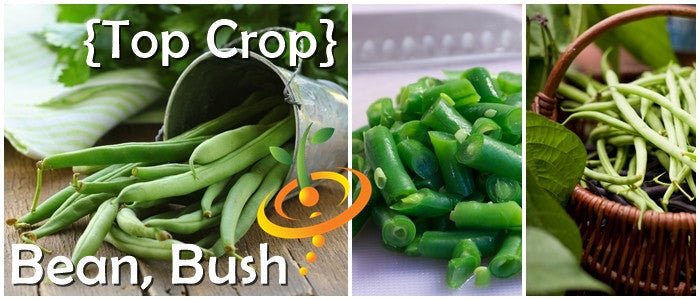
The Top Crop Bush Bean lives up to its name. This All-American Selections (AAS) winner produces high yields high up on a tall plant for easy harvesting. The 6"-7" pods are smooth, round, straight, and stringless, and they mature early in about 50 days. Also add heat tolerant to the list.
- Easy to grow
- Easy to harvest
- Heat tolerant
- Matures early—50 days
SEED PLANTING TIPS
- Botanical name: Phaseolus vulgaris
- Depth to plant seeds: 1" deep
- Spacing between plants: 4" apart
- Spacing between rows: 18"-24" apart
- Days to germinate (sprout): 5-10 days
- Germination soil temps: 70F-85F
- Soil needs: 6.0-7.0 pH
- Sun needs: Full sun
- Frost hardy: No
- Planting season: Spring, summer, fall
- # of plants per sq. ft.: Appx. 4 plants per sq. ft.
- Days to maturity: 50-55 days
Click here to view our full Bean grow guide
Good companion plants: Cucumber, Pea, Rosemary, Thyme, Tomato
Bean, Lima/Bush - Henderson seeds
From $299 USDUnit price /UnavailableDescription

The Henderson Lima Bean is an old heirloom with a reputation for easy growth and high yields of small, but plump pods and beans. This is one bean that requires higher temperatures for best production. Raw beans are toxic, so enjoy its smooth, creamy, buttery flavor after cooking, either shelled or dried. This compact bush-type plant spreads wider than green beans, so give them room to grow.
- Easy to grow
- Bush growth habit
- Heat loving
- Superb flavor
SEED PLANTING TIPS
- Botanical name: Phaseolus lunatus
- Depth to plant seeds: 1.5" deep
- Spacing between plants: 6"-8" apart
- Spacing between rows: 24"-30" apart
- Days to germinate (sprout): 10-21 days
- Germination soil temps: 70F-90F
- Soil needs: 6.0-7.0 pH
- Sun needs: Full sun
- Frost hardy: No
- Planting season: Spring, summer, fall
- # of plants per sq. ft.: Appx. 2-4 plants per sq. ft.
- Days to maturity: 65-75 days
Click here to view our full Bean grow guide.
Good companion plants: Cucumber, Pea, Rosemary, Thyme, Tomato
Bean, Runner/Pole - Scarlet Runner seeds
From $399 USDUnit price /UnavailableDescription

The Scarlet Runner Pole Bean is just about as traditional a vegetable you can grow in your garden. Named for its showy red hummingbird attractors (flowers) it puts out on 6'-8' vines that will grow on fences, trellises, and yes, poles. This high-yielding runner bean produces foot-long pods with speckled red-purple beans, but pick them sooner for best flavor. Tolerates heat and drought, and doesn’t mind cool nights.
- Easy to grow
- Heat tolerant
- Long pods up to 8"-12”
- Eat fresh, shelled, or dried
SEED PLANTING TIPS
- Botanical name: Phaseolus coccineus
- Depth to plant seeds: 1" deep
- Spacing between plants: 5" apart
- Spacing between rows: 18"-24" apart
- Days to germinate (sprout): 8-14 days
- Germination soil temps: 70F-85F
- Soil needs: 6.0-7.0 pH
- Sun needs: Full sun
- Frost hardy: No
- Planting season: Spring, summer
- # of plants per sq. ft.: Appx. 4 plants per sq. ft.
- Days to maturity: 65-75 days
Click here to view our full Bean grow guide
Good companion plants: Cucumber, Pea, Rosemary, Thyme, Tomato
Bean, Runner/Pole - White Emergo seeds
From $099 USDUnit price /UnavailableDescription
The White Emergo Runner Pole Bean twinkles with lots of sweet white flowers, which may be why it’s also known as Sweet White Runner Bean. Vigorous vines can grow to 10' to support long 8"-12" pods with creamy white beans inside. Pick young for snap beans and mature for shell beans, or let them dry for a bean similar to cannellini.
- Easy to grow
- Tasty white beans
- Long pods up to 8"-12”
- Eat fresh, shelled, or dried
SEED PLANTING TIPS
- Botanical name: Phaseolus coccineus
- Depth to plant seeds: 1" deep
- Spacing between plants: 5" apart
- Spacing between rows: 18"-24" apart
- Days to germinate (sprout): 8-14 days
- Germination soil temps: 70F-85F
- Soil needs: 6.0-7.0 pH
- Sun needs: Full sun
- Frost hardy: No
- Planting season: Spring, summer
- # of plants per sq. ft.: Appx. 4 plants per sq. ft.
- Days to maturity: 80-115 days
Click here to view our full Bean grow guide
Good companion plants: Cucumber, Pea, Rosemary, Thyme, Tomato
- From $399 USDUnit price /Unavailable
Description

- [Beta vulgaris] A rare heirloom beet variety introduced to the United States in the 1840's from Italy. The Chioggia beet produces excellent yields of some of the sweetest pink skinned beets
- Chioggia beets have red & white rings
- Perfect for juicing, boiling, pickling, baking, and/or freezing. Leaves can also be used as greens
- Grows well in containers and compact locations
- Easy to grow
- Likes cool weather
-
Days to Maturity | 60 days
- Beet Seeds | Beets are hardy and may be sown as soon as the ground can be worked. Sow seed 1/2 inch deep in rows 12-18 inches apart.
Shop all Beet Seeds 📚 Beets Grow Guide - [Beta vulgaris] A rare heirloom beet variety introduced to the United States in the 1840's from Italy. The Chioggia beet produces excellent yields of some of the sweetest pink skinned beets
- From $299 USDUnit price /Unavailable
Description

- These cylindrically shaped, dark red roots, 5 to 8 inches long and 2 inches thick
- Great for slicing
- Produces lots in small spaces
- Extremely popular and easy to grow
-
Days to Maturity | 60 days
Shop all Beet Seeds 📚 Beets Grow Guide - These cylindrically shaped, dark red roots, 5 to 8 inches long and 2 inches thick
Beet - Detroit (Dark Red) seeds
From $299 USDUnit price /UnavailableDescription
- From $299 USDUnit price /Unavailable
Description

- Early, round, smooth-skinned beets are exceptionally tender.
-
Days to Maturity | 50 days
- Beet Seeds | Beets are hardy and may be sown as soon as the ground can be worked. Sow seed 1/2 inch deep in rows 12-18 inches apart
Shop all Beet Seeds 📚 Beets Grow Guide - Early, round, smooth-skinned beets are exceptionally tender.
Borage (Starflower) Flower seeds
From $399 USDUnit price /UnavailableDescription

Borage, also called Starflower, is a fast-growing flowering herb with bright blue star-shaped flowers and fuzzy stems and leaves, all edible and they taste like cucumber. Grows 1'-3' tall and reseeds liberally, so it can become invasive. Use the young leaves like spinach and the sweet little flowers as a charming garnish on salads and cakes, or frozen into ice cubes. Easy to dry and use as a refreshing herbal tea.
- Cucumber flavor
- Garden companion superstar
- Culinary and medicinal
- Spreads easily
A valuable companion in the vegetable garden, it repels cabbage moths, cabbage white butterfly, cabbage worms, and tomato hornworms; attracts pollinators and beneficial insects; acts as a trap crop for grasshoppers; and feeds the soil as a green manure or mulch.As a medicinal herb, Borage is used internally to treat anxiety, colds, congestion, cough, depression, fever, hot flashes, insomnia, irritable bowel syndrome (IBS), upset stomach, and urinary problems, and externally to treat insect bites and stings, skin irritations, and swelling.
⚠️ Toxic to pets and livestock. Do not ingest while pregnant or nursing, or if you have liver problems.
⚠️ Medicinal properties are presented as information only, and are not a recommendation or prescription for use. Consult a medical professional before using any herb medicinally.
SEED PLANTING TIPS
- Botanical name: Borago officinalis
- Life cycle: Herbaceous annual
- Hardiness zones: 2-11
- Planting season: Spring, summer
- Days to maturity: 55-60 days; can begin harvesting when 6" tall
- Depth to plant seeds: 1/4" deep
- Days to germinate (sprout): 5-14 days
- Germination soil temps: 65F-70F
- Spacing between plants: 12"-18" apart
- Spacing between rows: 18"-24" apart
- # of plants per sq. ft.: Appx. 1 plant per sq. ft.
- Soil types: Clay, sandy, loamy, silty, rocky, chalky, poor, dry, moist, well-drained
- Soil pH: 4.8-8.3
- Sun needs: Full sun, part shade
- Water needs: Average
- Cold stratify: No
- Frost tolerant: Yes
- Heat tolerant: Yes
- Drought tolerant: Yes
- Deer resistant: Yes
- Culinary use: Yes
- Medicinal use: Yes
Good Companion Plants: Basil, Broccoli, Bean, Brussels Sprouts, Cabbage, Cauliflower, Collards, Cucumber, Eggplant, Fava Bean, Kale, Marigold, Melon, Mustard, Pea, Pepper, Pumpkin, Radish, Soybean, Squash, Strawberry, Tomato, Zucchini

Borage is a fairly common herbal remedy that has been used since ancient times. It's best when grown in containers because it is extremely invasive. The flavor of these flowers is crisp and refreshing.


What is Borage?This gorgeous, but highly invasive medicinal herb will boast lovely blue and purple flowers and will get at least 5 feet tall wherever you plant it. Very easy to grow, it will re-seed year after year and will be a lovely piece for your garden. The flavor of the Borage flowers resemble cucumbers... cool and crisp.

Health Benefits of BorageBorage is wonderful and has a great reputation for it's beneficial affect on the mind. It's been used to dispel melancholy and induce euphoria. It's a soothing saline, diuretic herb that helps treat damaged or irritated tissues. The leaves can be used as well as an emollient and expectorant.

Ways to Consume BorageConsume these edible flowers in your favorite fresh salads or as a lovely garnish to any dish! Dry the leaves and flowers to make an herbal tea. Freeze these lovely flowers into ice cube trays. Try adding them to wine, cider, and other fruit drinks. Borage pairs well with all salads, most cheeses, summer-like beverages and even fish. You can even "candy" these flowers and use them as edible decorations on cakes, tarts and ice cream.

See Borage Recipes & Growing Tips on our Pinterest Board
🌱 Featured Seed Types (A - Z)
View allcontinue shopping






























































































































